Space ISAC’s sixth annual Value of Space Summit (VOSS VI), co-hosted by The Aerospace Corporation, will explore the theme The Secure Space Ecosystem: Fostering Economic Growth, Global Partnerships, and Workforce Innovation.
VOSS VI serves as an annual forum for Space ISAC members and partners, bringing together experts across space, security, and threat intelligence sectors to strengthen the secure space ecosystem. This year’s theme highlights the critical role of collaboration in driving innovation, expanding economic opportunities, and building a resilient workforce. As the space industry continues to evolve, fostering strong global partnerships and advancing security initiatives are essential to ensuring long-term growth and sustainability.


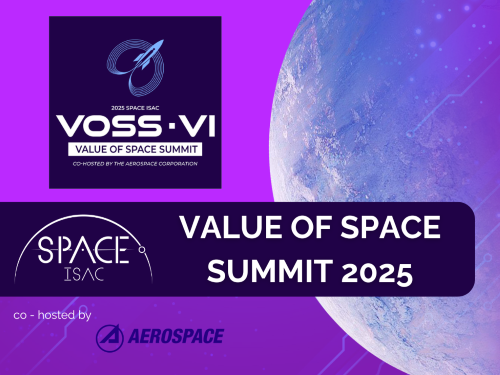
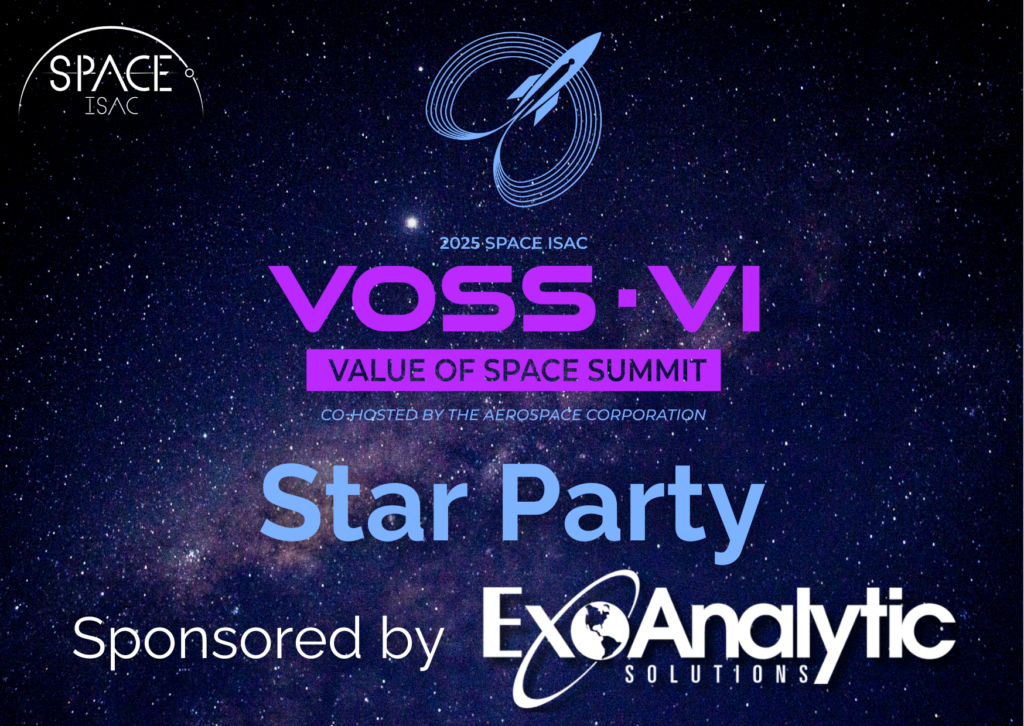
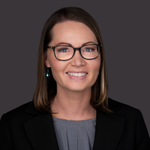
Erin has over a decade of experience building meaningful tech collaborations and has formed hundreds of formal partnerships between government, industry and academia to solve problems for warfighters and national security. Currently Erin is the Executive Director of the Space ISAC and leads this Public-Private Partnership (P3) with fervor to secure the global space community. Space ISAC serves as the primary focal point for the global space industry for all threats and all hazards. Stood up at the direction of the White House in 2019, Erin led the Space ISAC to open its operational Watch Center, alongside the Cyber Malware and Analysis Vulnerability Laboratory in Colorado Springs, CO, USA. Under Erin’s leadership, Space ISAC’s headquarters facility is already serving several countries to achieve the mission of security and resilience for the global space industry. Each year Space ISAC puts on the Value of Space Summit, co-hosted with The Aerospace Corporation.
As a serial entrepreneur in the non-profit space, she thrives in launching new programs and new organizations from standing it up through building operations for new organizations.
Erin was the Managing Director of the Center for Technology, Research and Commercialization (C-TRAC) and brought three USAF-funded programs to bear at the Catalyst Campus for Technology & Innovation (www.catalystcampus.org) from 2016-2018. Her expertise in brokering unique partnerships using non-FAR type agreements led to the standup of the Air Force’s first cyber focused (#securebydesign) design studio, AFCyberWorx at the USAF Academy, and the first space accelerator, Catalyst Accelerator, at Catalyst Campus in Colorado Springs – in partnership with Air Force Research Laboratory and AFWERX.
In 2020 Erin was a recipient of the Woman of Influence award. In 2018 Erin was recognized by the Mayor of Colorado Springs as Mayor’s Young Leader (MYL) of the Year Award for Technology. She is also the recipient of Southern Colorado Women’s Chamber of Commerce Award for Young Female Leader in 2018.
In her previous roles she developed and managed intellectual property portfolios, technology transfer strategies, export control/ITAR, secure facilities, and rapid prototyping collaborations.
Erin serves on the advisory board of CyberSatGov, CyberLEO and is a board member for the Colorado Springs Chamber of Commerce & EDC. She has guest lectured at Georgetown University, United States Air Force Academy, University of Colorado at Boulder, Purdue and Johns Hopkins University.
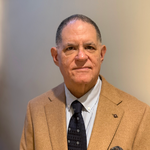
Samuel Sanders Visner is a Technical Fellow at the Aerospace Corporation and Chair of the Board of Directors. Space Information Sharing and Analysis Center, the premier public/private and global partnership for the protection of our space systems. Sam served previously as a MITRE Tech Fellow and the Director of the National Cybersecurity Federally Funded Research and Development Center (MITRE), sponsored by the National Institute of Standards and Technology. Sam was appointed in 2020 as a member of the Board of Directors of the Oak Ridge Associated Universities. Sam is a former adjunct professor of Science and Technology in International Affairs at Georgetown University, where he taught a course on cybersecurity policy, operations, and technology; he remains and advisor to that program. Sam was a member of the Intelligence Community Studies Board of the National Academy of Sciences, serving the Office of the Director of National Intelligence. Sam is currently a member of the Army Science Board. In industry, Sam served as general manager of several cybersecurity businesses. He also served as Chief of Signals Intelligence Programs at the National Security Agency for which he received the Agency’s highest award for civilian service. Sam holds a bachelor’s degree in international politics from Georgetown University and a master’s degree in Telecommunications from George Washington University. Sam has published articles on national and cybersecurity in World Politics Review, the Georgetown Journal of International Affairs, and the Defense Intelligence Journal.

Ted “Juice” Perry is an experienced Joint Operations, Non-Kinetics, Space and Gray Zone Principal at Infinity Labs. He has 25 years of special operations, Advanced Forces Operations (AFO), and sensitive activities experience, which include the Global War On Terrorism (GWOT), Great Power Competition (GPC), Domestic Special Operations and Gray Zone Warfare. Mr. Perry has developed offensive cyber weapon systems, space-based assets and non-kinetic capabilities at the Joint and Interagency level, while carrying out missions spanning six continents. He served as the Russian New Generation Warfare (RNGW) Adviser to the Joint Chiefs of Staff during the 2014-2015 winter offensive in Ukraine, teaching the leveraging of unlicensed bandwidth to contest and defeat UAS and other platforms.
Ted Commanded at Joint levels to include Strategic satellite control facilities, non-kinetic threat scaping intelligence assessments for Continuation Of Operations (COOP) and Continuation Of Government (COG) missions. Ted served in the stand up of the USNORTHCOM Domestic Cyber Watch Operations Center and USSPACECOM Joint Cyber Center/Information Warfare Directorate. Ted served as a Principal Application Adviser for the development of Persistent Space-Cyber test beds to exploit on-orbit constellations; teaching and instructing space aggressors, special operations and other government agencies on how to target and induce non-kinetic effects on satellites. Mr. Perry has recently advised and performed on DARPA SCEPTER and STRATCOM Deep Strike, aiding in generating and evaluating Artificial Intelligence through social causality modeling and simulation developments to generate high fidelity/high speed all domain and gray zone operations wargaming for joint warfighting in Doctrine 2030 initiatives. Mr. Perry is a Co-author of Joint Publication 3-12 (JP 3-12) Cyberspace Operations, Army Field Manual 3-12 (FM 3-12) Cyberspace and Electromagnetic Warfare, and the Russian New Generation Warfare Handbook.
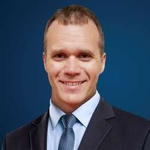
Brandon Bailey is a principal engineer for the Cybersecurity and Advanced Platforms Subdivision (CAPS) at The Aerospace Corporation, at The Aerospace Corporation. In this role, Bailey has focused on developing a cyber range to support penetration testing training and in-the-lab evaluation of customers’ implementations, performing vulnerability assessments and penetration testing activities for multiple customers as well as performing cybersecurity research on ground systems and spacecraft systems to better position the federal government with respect to protection of our critical space infrastructure. Bailey has also led the development of the space-focused tactic, technique, and procedures (TTPs) framework called Space Attack Research and Tactic Analysis (SPARTA). SPARTA is intended to provide unclassified information to space professionals about how spacecraft may be attacked. Bailey is a former civil servant at NASA, where he led various cybersecurity efforts and was awarded NASA’s Exceptional Service Medal for his landmark cybersecurity work in 2019. He has extensive experience in the test and evaluation of systems and technology using high-fidelity digital twins with specialization in cybersecurity. Bailey graduated Summa Cum Laude with a bachelor’s degree in Electrical Engineering from West Virginia University and currently holds multiple certifications in the cybersecurity field. Bailey has been an adjunct and guest lecturer at WVU for several years, and he also conducts lectures for Johns Hopkins University, Cornell University, and Indiana University.
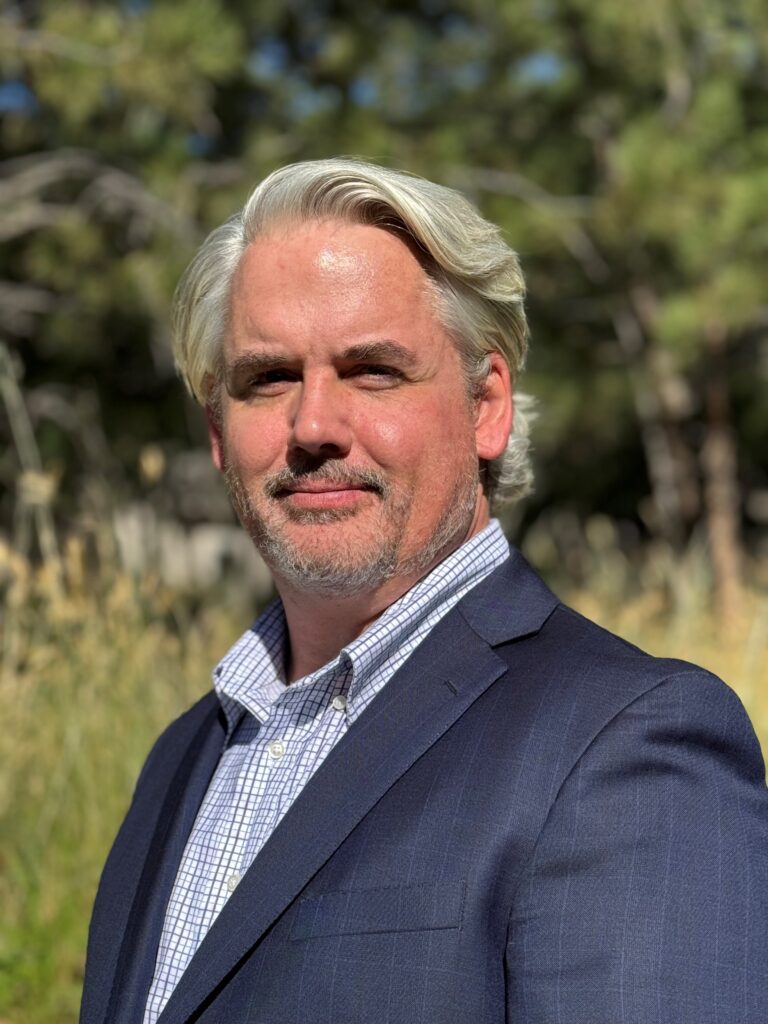
Daniel Barr is Director of Technology Strategy at Bering Straits Native Corporation, where he leads both strategic capture efforts and technology strategy development for federal programs.
In this role, he drives capture campaigns for opportunities exceeding $100M, builds competitive deal strategies, and forges partnerships that expand BSNC’s presence across new mission and technology domains.
On the strategy side, Daniel develops go-to-market frameworks, service catalogs, and evidencebased success metrics that strengthen BSNC’s competitive edge. He leads black hat reviews, customer engagement planning, and win theme development to ensure the company positions early and effectively with defense and intelligence clients. His work also includes partner management, pipeline optmization, and solutioning workshops that tie emerging technologies directly to mission outcomes.
A retired U.S. Air Force senior leader with more than 23 years of service, Daniel previously managed global satellite communications portfolios, fielded nuclear-survivable MILSATCOM capabilities, and directed cyber and IT organizations supporting 15,000+ users. His assignments included roles at Air Mobility Command, Space Operations Command, and the 613th Air Operations Center, where he advanced cyber defense and space integration efforts.
Today, Daniel is recognized for connecting emerging technologies such as 5G, LTE, AI, and cyber defense with operational mission needs in the space domain. At the Value of Space Summit, he will share insights on cybersecurity risks in and across space and terrestrial networks, and the strategies industry and government can adopt to strengthen resilience in the face of evolving
threats.
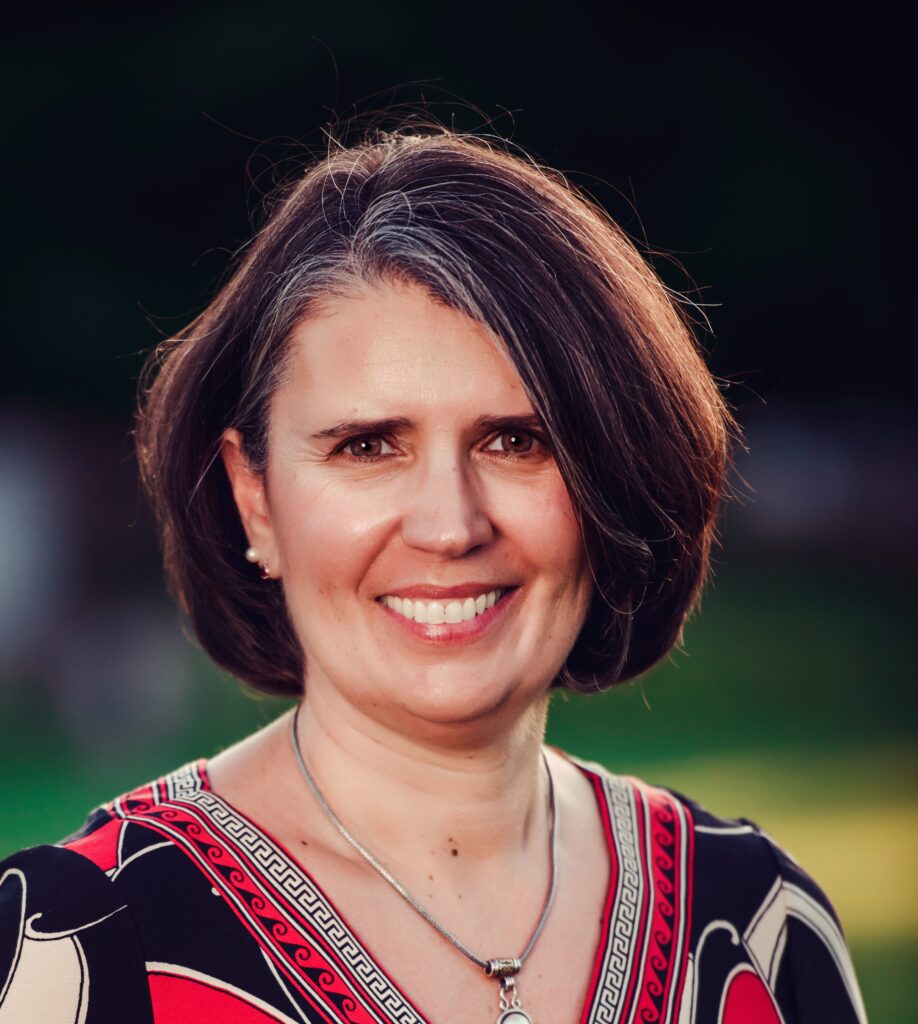
Ms. Bliss is the Cybersecurity Program Director at UCCS and Secretary of the Board for Space ISAC. She and her team are working to expand cybersecurity across the 6 Colleges at UCCS and throughout the cyber an d space ecosystem in Colorado Springs. In addition to the long-standing cybersecurity programs at Engineering and Applied Science, now the School of Education, School of Public Affairs, College of Letters, Arts and Sciences and College of Business have all launched Cybersecurity programs, concentrations or certificates. Over the last 5 years, she led the development and implementation of the initial and V2 of UCCS POWER Cybersecurity Strategy, Partnership, Outreach, Workforce, Education and Research. This strategy has launched a focused effort across campus to lead in the cybersecurity ecosystem to create a network that produces qualified cybersecurity professionals to meet the growing need in industry. Previously, she worked at PPCC for 5 years as their Cybersecurity Director and led the college Cybersecurity efforts through increasing the PPCC profile and footprint in cybersecurity. Before PPCC, she worked for 25 years in the intelligence community, most recently as the NORAD Deputy Senior Analyst and Chief of Plans, supporting the government’s efforts in understanding the evolution of cyber since the early 1990s on cyber, information operations and warfare, and computer network defense/attack.
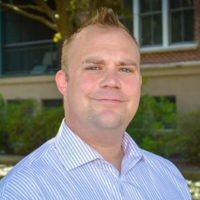
Daniel Byrnside is the Security Operations Manager for Capella Space and has aided in the development of the LEO Owner Operator Affinity Group and forthcoming Space Traffic Awareness charters. Dan has over 20 years of experience supporting cyber security operations throughout the Department of Defense, Department of Treasury, Department of Veterans Affairs, along with several companies supporting the healthcare and aerospace industries. In addition to serving as Capella’s Security Operations Manager, Dan has also served as a Cyber Operations Officer in the US Army and US Army National Guard for 19 years, most recently concluding a tour as the 125th Cyber Protection Battalion Commander where he mobilized for 400 days commanding Task Force Echo, defending critical cyber infrastructure for US Cyber Command. While regularly engaged in his day-to-day activities leading Capella’s Security Operations Center, Dan also serves as the primary Incident Response Lead and Compliance Lead for Capella’s CMMC Level 2 accredited IT environment. Dan holds a bachelor’s degree in computer science and a master’s degree in business administration with a focus on Information Security, both from James Madison University. Dan’s certifications include the (ISC)2 Certified Information Systems Security Professional (CISSP), (ISC)2 Certified Cloud Security Professional (CCSP), SANS GIAC Certified Incident Handler (GCIH), SANS GIAC Certified Enterprise Defender (GCED), and SANS GIAC Mobile Device Security Analyst (GMOB).
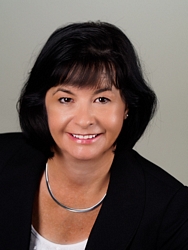
Lina M. Cashin is a senior project engineer in the Defense Systems Operations Group at The Aerospace Corporation. She develops strategies, policies, and requirements for space-based capabilities and supports national security missions. Cashin also serves as a policy analyst for the Center for Space Policy and Strategy, where she provides objective research to ensure well-informed and forward-looking policy.
Cashin excels in translating complex concepts from engineers and scientists to operators and acquirers. She provides system engineering and requirement analysis for U.S. Space Command and U.S. Strategic Command deterrence, nuclear operations, and space missions. She focuses on satellite communication and has co-authored a biennial threat report, Joint Space Communications Layer Initial Capabilities Document Change 1, and an implementation plan. She also drafted the USSTRATCOM 2016 GPS Timing Error Operational Review Board Report.
Additionally, she researches national and international security implications. She co-wrote Space-Enabled Persistence and Transparency in the Arctic to Support Infrastructure and National Security Needs and Developing a Sustainable Spectrum Approach for 5G Services & Critical Weather Forecasts. She also orchestrated a space debris forum on Capitol Hill to educate congressional staffers.
Before joining Aerospace, Cashin was a strategic planner for U.S. Strategic Command’s Integrated Missile Defense in Colorado Springs, Colorado. She supported the missile defense strategy and policy team in thought leadership and foreign military sales recommendations. She prepared the leadership for congressional testimony, missile defense boards, and global force management decisions.
Prior to this, Cashin served 24 years in the U.S. Air Force, where she was an expert in space and cyber operations, policy, and strategy. She established the U.S. space situational data-sharing program, ensuring safety of spaceflight and pioneering international transparency for improved spaceflight operations, culminating in seven international agreements. Cashin also served many space operations assignments: orbital analyst; Delta II launch controller; flight commander and operations officer at the Air Force’s officer leadership training school; and commander, Detachment 1, 533rd Training Squadron, technical training for Cheyenne Mountain operations.
Cashin’s staff assignments included lead for space exercises at the Air Force Doctrine Center; Chief of Space Policy, U.S. Strategic Command; Director of Staff, 45th Space Wing, Patrick Air Force Base; and Chief, Policy, Doctrine, and International Engagement Division, U.S. Strategic Command, Offutt Air Force Base. Cashin retired from the Air Force in 2013 with the rank of colonel.
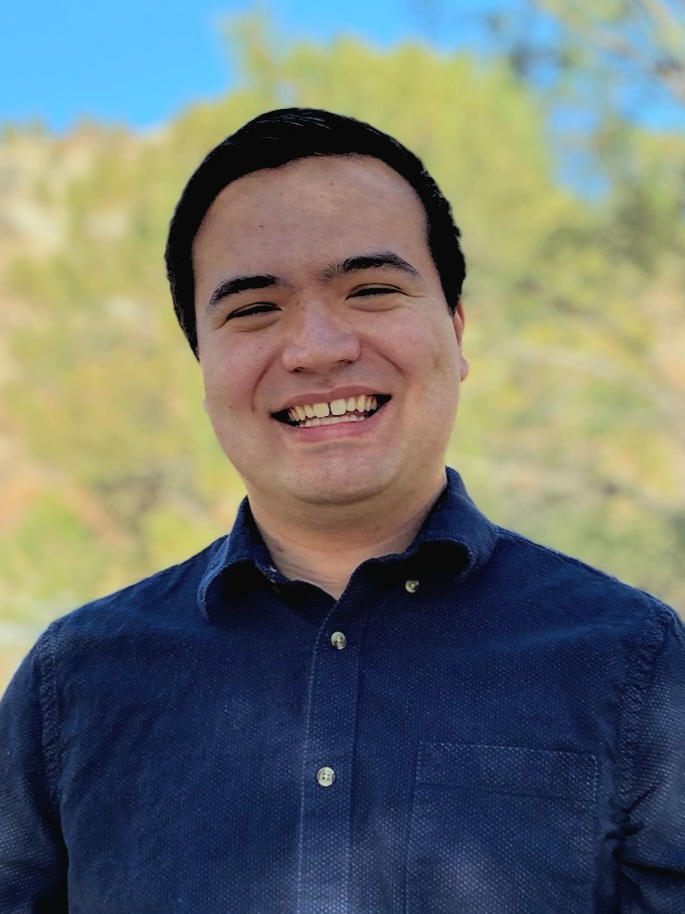
Caleb Chang is currently pursuing his Bachelor of Science in Computer Science with a focus in Cybersecurity at the University of Colorado, Colorado Springs where he is also an Undergraduate Research Assistant, Virtual Institutes for Cyber and Electromagnetic Spectrum Research and Employ(VICEROY) Fellow, and a member of the UCCS Laboratory for Cybersecurity Dynamics where he is conducting research on zero-day vulnerabilities in space flight software.
While at UCCS, Caleb has participated in several Capture-the-Flag competitions as a member of the Cybersecurity Club. He has also published research papers in the Institute of Electrical and Electronics Engineers (IEEE) Symposium on Security and Privacy (SP), the Network and Distributed Systems Security (NDSS) Workshop on the Security of Space and Satellite Systems (SpaceSec) and the Military Cyber Affairs (MCA) journal.
When not in class, Caleb spends his time researching cyber threats and exploring emerging technologies. He enjoys competing in cybersecurity competitions and playing strategy games.

Rachel Cheetham is the Vice President of Business Operations at Capella Space. Previously, Mrs. Cheetham founded Final Offset, a consulting firm dedicated to building bridges between
government, industry, and academia. As an independent consultant, Mrs. Cheetham worked with a variety of companies to develop market capture plans, refine business models, and
create strategic marketing & communication plans.
Mrs. Cheetham brings diverse experience having worked for both commercial companies as well as for the Department of Defense (DoD). Mrs. Cheetham served as the Director of the DoD
Defense Innovation Board’s (DIB) Space Advisory Committee supporting their mission to provide independent advice on strategic, organizational, and technological issues affecting the
space domain. Prior to her work with the DIB, Mrs. Cheetham served as the Regional Director of the DoD National Security Innovation Network (NSIN) where she engaged military customers, start-ups, and academic institutions to leverage the best ideas, talent, and technology against critical national security problems. Mrs. Cheetham also served as the Chief of Staff of Sierra Nevada Corporation’s Space Systems where she worked with the executive team to coordinate strategy development and execution.
Mrs. Cheetham is a collaborator, mentor and has a proven record of elevating others as an advocate and champion of the aerospace industry. Mrs. Cheetham received a Bachelor of
Business Administration in International Business and Economics from New Mexico State University and holds a Master of Business Administration from the University of Colorado.
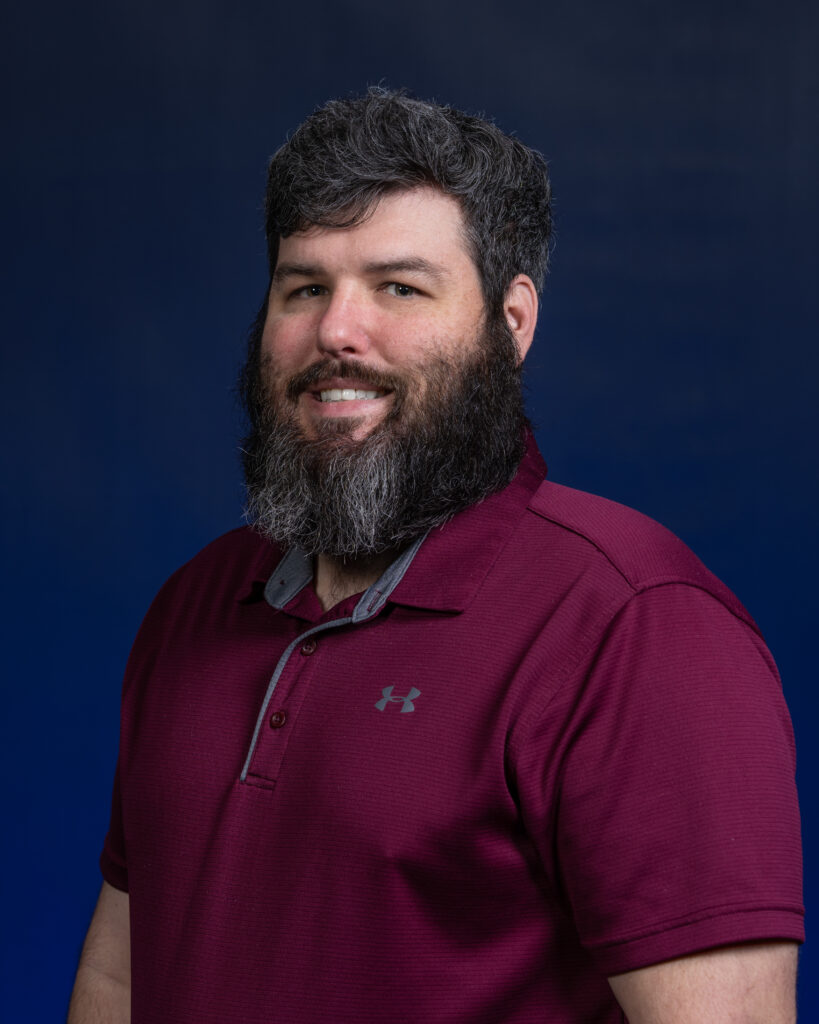
Dr. Sean Crouse is an Assistant Professor of Space Operations, Cybersecurity, and Simulation and the Associate Director for the Center for Aerospace Resilient Systems at Embry-Riddle Aeronautical University. His career spans defense, intelligence, and academia, with a strong focus on cybersecurity, AI/ML applications, and space systems. His current work emphasizes the intersection of complex aerospace digital systems and emerging technologies, supported by a commitment to research, teaching, and student mentorship.
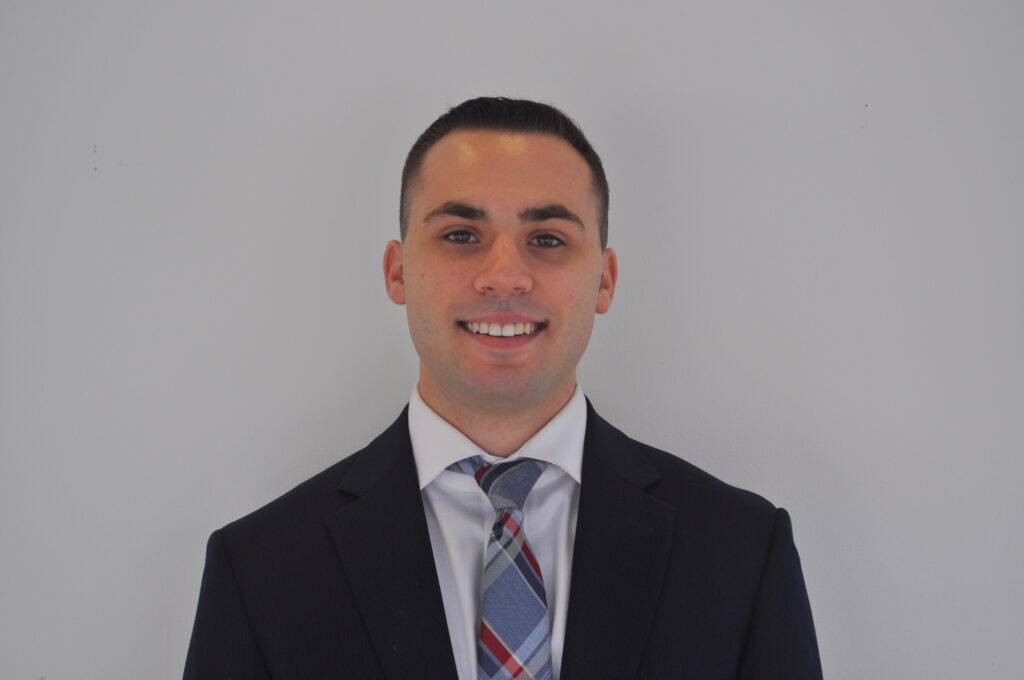
Kyle Cybul is the co-founder of the Clean Orbit Foundation, an independent nonprofit dedicated to advancing sustainable space operations and the emerging circular space economy (CSE). Through a combination of education, advocacy, and international collaboration, the foundation aims to mitigate the environmental impact of space activities, promote economic resilience, and push for responsible stewardship of outer space.
With a diverse background spanning financial technology, space, and defense, Kyle brings expertise in strategy, program management, business operations, and business development to drive the foundation’s initiatives forward. Today, he is focusing on enabling a CSE through research initiatives alongside key stakeholders globally. Kyle is also the co-chair of the CSE Special Interest group under CONFERS and an active member of the ADR Task Force.
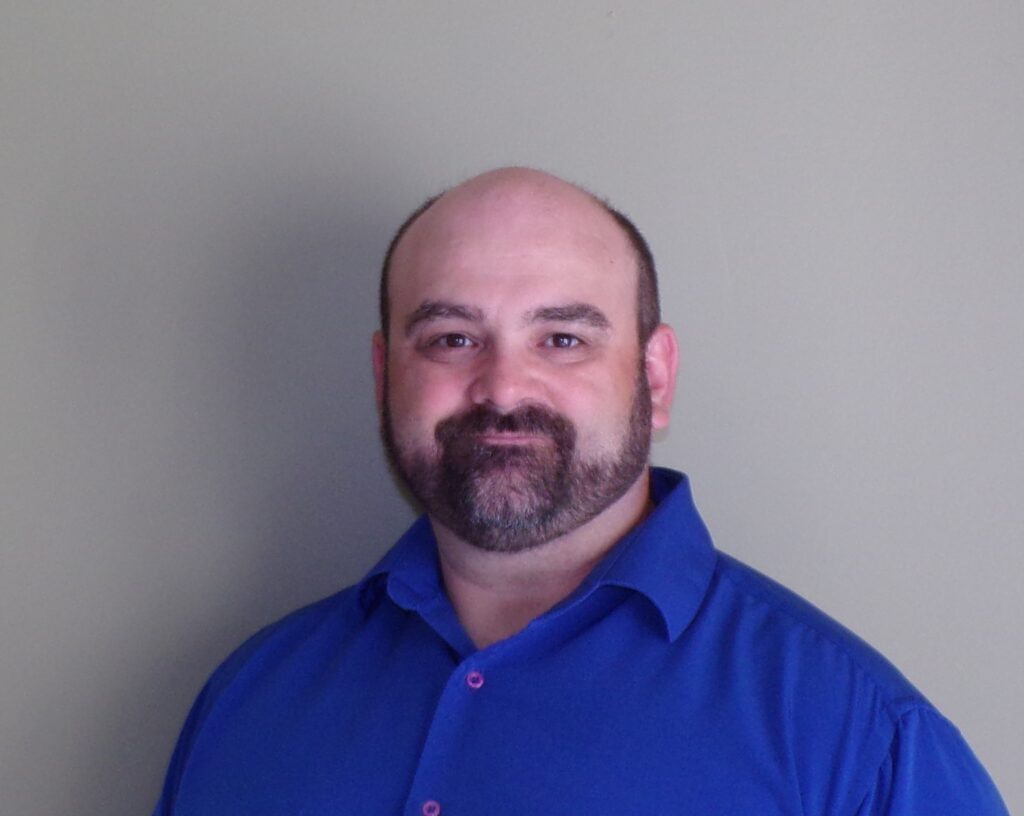
Joe Davis is a seasoned technology leader and cybersecurity expert with two decades of experience spanning software engineering, systems design, project management, and applied research. At BigBear.ai, Joe leads cutting-edge initiatives at the intersection of artificial intelligence and space resilience, including the development of on-orbit intrusion detection systems and synthetic data generation for cyber-physical threat modeling. He has contributed to national security and space innovation through work on DARPA’s SpaceBACN, participation in AFRL’s Hack-a-Sat, and performing advanced vulnerability research for satellite and terrestrial systems. Joe holds advanced degrees in software engineering, numerous industry certifications, and a reputation for mentoring the next generation of technical talent in high-stakes mission domains.
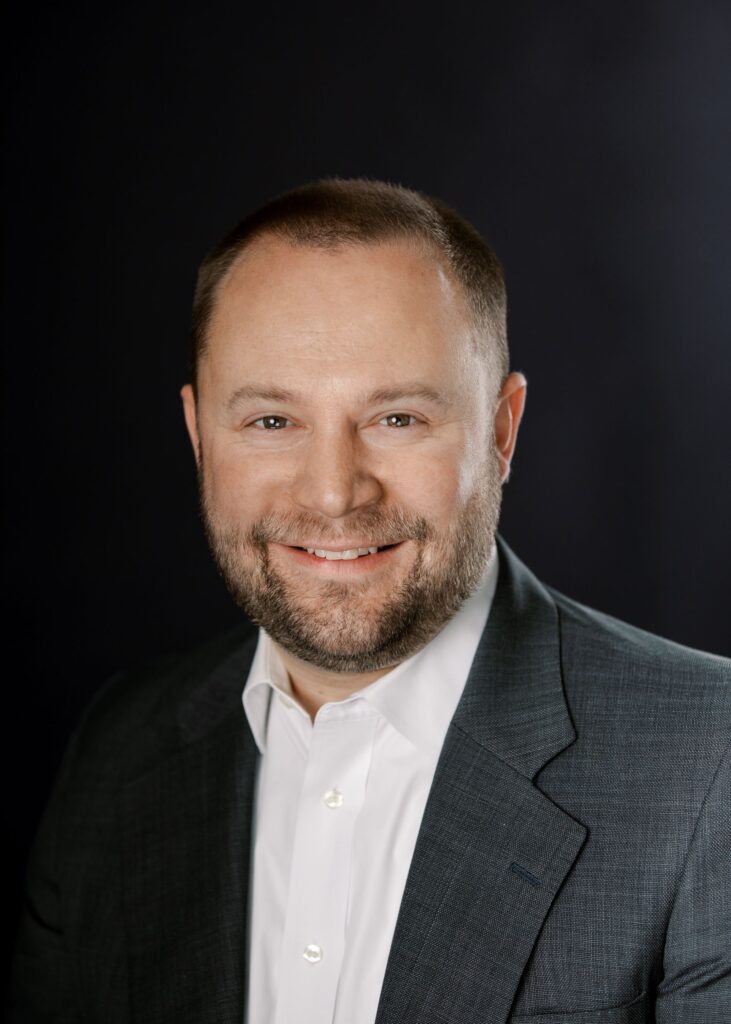
Chris DeMay is the Chief Operating Officer and Founder of TrustPoint. TrustPoint is a NewSpace company developing a commercial alternative to GPS, and the 2024 SATELLITE Startup Winner. Before founding TrustPoint, Chris DeMay was founder of HawkEye 360, the first commercial company to launch satellites to identify and geolocate a wide-range of signals. Under his leadership, HawkEye raised $100M+ and was named the 2019 SpaceNews Startup of the Year. Mr. DeMay served fourteen years in various roles within the U.S. Government, including leading $500m of satellite technology development. Mr. DeMay was named a 2019 Washingtonian’s Tech Titan and a 2016 USGIF GEOINT Golden Ticket winner; he is the recipient of the AFCEA’s 40 Under 40 Award, the NRO Gold Medal of Distinguished Performance, and the Frank Beamer Award for Exceptional Service. Mr. DeMay is a Project Management Professional and member of Mensa. He has an MS in Systems Engineering and a BS in Business Information Technology, both from Virginia Tech. Chris lives in Chantilly, Virginia with his wife and two children.
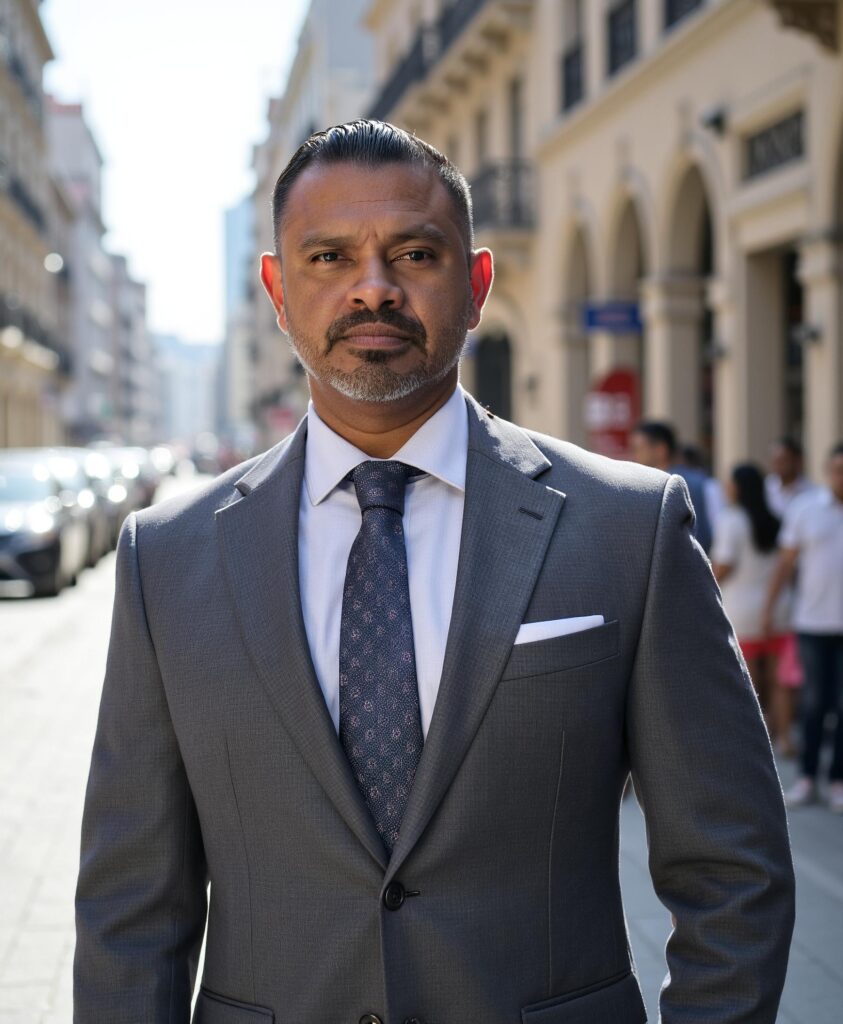
Hector Falcon is the Director for the Space Information Sharing and Analysis Center (Space ISAC) Watch Center. Before joining the Space ISAC in 2022, Hector served as a Cyber Security Leader for Space for two years before his retirement in 2022 from the newly established United States Space Force as a Senior Enlisted Leader helping establish diversity & fusion across intelligence, cyber and space disciplines spanning multiple career fields. Hector is a former Intelligence Officer serving within the Defense Intelligence Agency (DIA) as a regional leader and across the United States Air Force having served across several theaters of operation (Kuwait, Iraq, Afghanistan and Pakistan) & continents as a 26-year Air Force and Space Force Veteran. He holds a Master’s of Science Degree in Information Technology and Strategy and holds several industry certifications spanning disparate sectors. As a gray zone operations advisor, Hector continues to inform the broader community and collective through three simple questions.
What do I know?
What do I not know?
What are my assumptions?
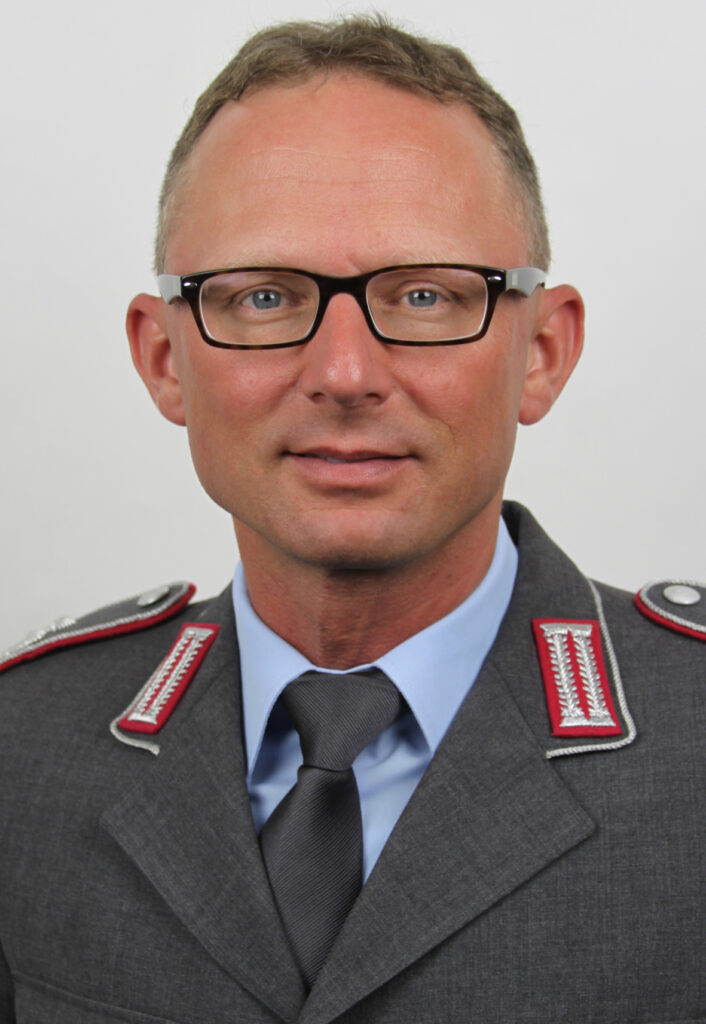
Mr. Fraas joined the German Army in 1995. Infantry-Officer. General Staff Training Command and Staff College Hamburg. Cyber and Information Domain Service since 2017. Chief Future Development and Head of CapDev-Strategy.
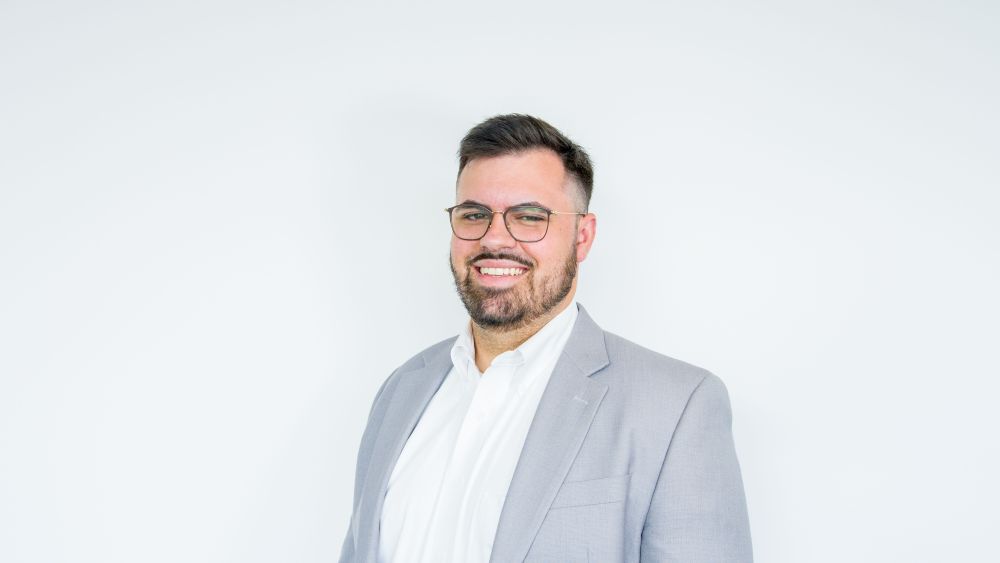
Joel has leveraged his background in technical writing and information design in the commercial threat intelligence field and enjoys building unique insights on the threat landscape for the space industry. Through his work at the Space ISAC, Joel communicates with space subject matter experts from across the world to track threats to space systems and facilitate information sharing across the space sector. As the lead of the Space ISAC’s Watch Center, Joel tracks trends and significant activity regarding threats to the space community. Joel received his bachelor’s degree in Professional and Technical Writing at the University of Colorado Colorado Springs and has helped to co-author several publications on behalf of Space ISAC.

Robert Geis is a recognized cybersecurity executive, currently serving as Field CISO—Global Cyber at World Wide Technology (WWT), with over 25 years of technical leadership experience spanning healthcare, telecommunications, service provider and cloud infrastructure sectors. He is renowned for driving cyber resiliency and risk governance strategies across Fortune 100 organizations, consistently delivering secure business outcomes at scale.
Professional Experience
Robert’s broad expertise consistently resonates with business transformation at scale including merger & acquisition integration, cloud transformation, cyber security risk driven initiatives, and critical infrastructure operational rigor delivered securely at scale. He has held key leadership roles at Netsmart—where he steered successful M&A and cloud initiatives, Cerner—overseeing network operations for SAAS services delivering healthcare across 34% of the US hospitals and DoD infrastructure, and Sprint—leading design and deployment of nationwide critical voice and data services. His collaborative approach fosters high-performing teams that embed cybersecurity rigor into organizational culture and operational workflows.
Philosophy & Values
Guided by principles of God-honoring, Excellence, Integrity, and Service, Robert’s commitment extends beyond technical leadership into mentoring and inspiring others to elevate their own standards in both professional and personal spheres. His “Karate Kid” career journey exemplifies continuous preparation, resiliency, and operational discipline—attributes he leverages to help organizations navigate complex threat landscapes and scale security practices effectively.
Industry Impact
Robert is frequently called upon as a trusted advisor for CIOs, CTOs, and CISOs, offering deep insights on security transformation, best practices, and real-world success stories. He is a regular contributor to strategic forums and workshops focused on cybersecurity risk reduction, compliance, and innovative defenses for today’s dynamic threat environment.
Community Engagement
Based in Kansas City, Robert champions family values and lifelong learning. He mentors future leaders and actively contributes to advancing cybersecurity as an industry and a strategic business function.
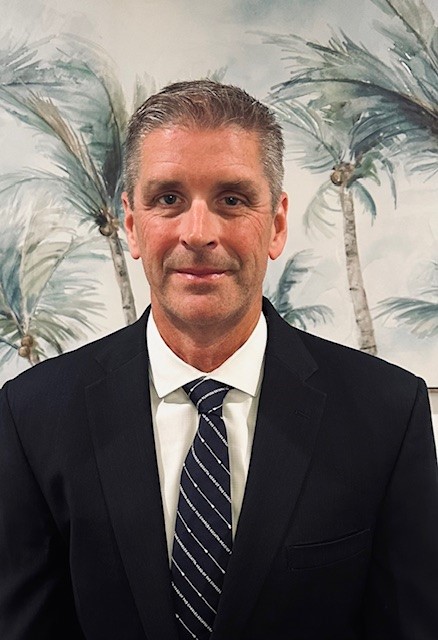
Greg Gillinger is the Senior Vice President for Strategy and Development for Integrity ISR. In his current role Greg leads the training development and delivery to every US Space Force enlisted Guardian (operations, intelligence and cyber). He is also leading Integrity ISR’s drive to partner with US and international corporations to develop and pursue ISR and Space operations and training opportunities. Beginning in August 2020, Greg has authored & published a twice-monthly open-source newsletter for dissemination across Space Force and international partners. In his “Integrity Flash,” Greg researches and analyzes Chinese and Russian space operations, defense and commercial space initiatives and introduces personnel to online space resources. The Integrity Flash circulation has expanded to over 2,000 domestic and international subscribers and includes all allied space operations centers. Greg is a Retired USAF Col with 25+ years of ISR experience in the cyber and space domains. During his military career Greg supported space operations for the better part of 10 years concluding in 2017-19 with his assignment as Director of Intelligence for 14th Air Force and Chief of the ISR Directorate at the Combined Space Operations Center, from 2017-19. Greg also served as a National Security Council Director from 2013-15.
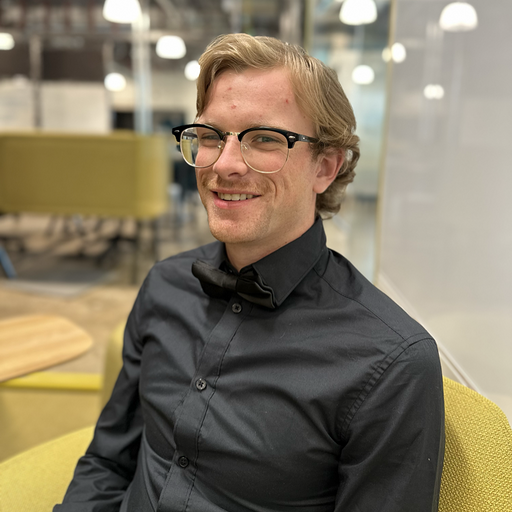
Serving as the Cross Domain Analyst at Space ISAC, Marcus Graham’s duties included spanning intelligence, cyber, signals, and space domains. He is responsible for employing sound intelligence analyst processes actively leveraging and fusing intelligence from many sources to include cyber, space and multi-domain conduits. To Marcus, impacts against space system architecture span all the way from the aquatic layer to the sun, both physical and non-physical. Which is something Marcus has learned through his time at Space ISAC, routinely providing threat briefings, writing timely reports, and actively engaging in research to assist members in maintaining actionable and critical situational awareness. Marcus had the privilege of routinely collaborating with subject matter experts that span all segments and sectors to better understand the diversity of threats against space. Some of the areas of threats that he is more passionate about include space weather, space debris, launch / recovery operations, subsea cables, and geopolitical conflicts. Marcus’ background is in criminology where he received my Master’s degree in Criminal Justice from the University of Colorado Colorado Springs.
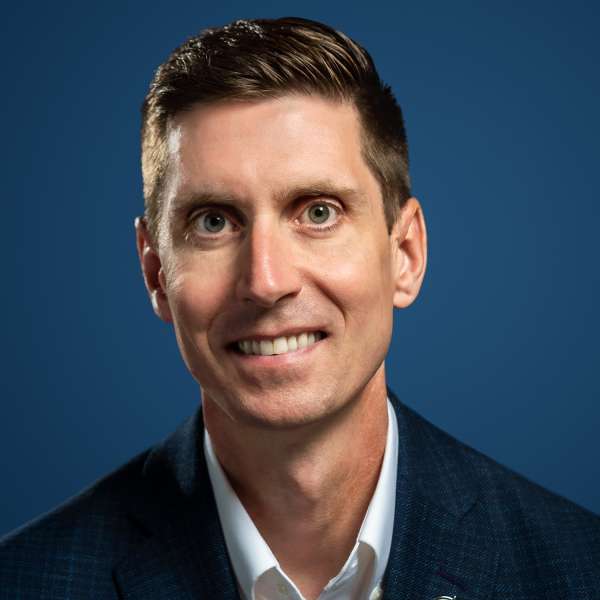
Dr. Timothy P. Graves is the general manager of the Information Systems and Cyber Division (ISCD) at The Aerospace Corporation. ISCD is responsible for Aerospace’s software, cyber, and data science innovations supporting national security space (NSS), NASA/civil programs, industry, and academia. As one of Aerospace’s largest engineering divisions, ISCD is at the cutting edge of technology supporting customers in multiple frontiers of software and cloud architecture, edge computing, artificial intelligence, machine learning, space cyber resilience, full-tack development, and more.
Previously, Graves was the general manager of the Physical Sciences Laboratories (PSL), a unique organization consisting of over 150 laboratories and a world-class scientific staff and portfolio. Graves led PSL to new levels with R&D growth and transition strategies that expanded the research portfolio and enabled improved collaboration and customer impact.
Graves joined The Aerospace Corporation in 2006 as a senior member of the technical staff in the Space Materials Laboratory, Laboratory Operations, where he developed new research and laboratories for space plasma effects. He managed the Electric Propulsion and Plasma Science group within the laboratories and then went on to have multiple customer-facing roles in the Department of Defense and Intelligence community. He relocated to Chantilly, Virginia, to join Aerospace’s National Systems Group, managing multiple payload acquisitions and becoming principal director of the Survivability and Resilience Office. In this role, Graves developed and grew a new program office for space resiliency across multiple customer sets and mission partners.
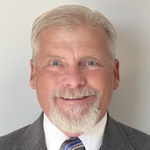
Dr. Monty Greer is currently a member of Aerospace’s Consortium Management Entity for the Consortium for Space Mobility and ISAM Capabilities (COSMIC). Monty has been with the Aerospace Corp since 2017 where, aside from his current role, he has held a number of positions in Technical Intelligence, System of Systems Engineering, and S&T investment planning for the USSF Force Design Process.
Prior to joining Aerospace, Monty was a Colonel in the USAF where his career spanned 33 years of service beginning as an aircraft structures technician on the SR71 and U2/TR1, GPS satellite operations, USAFA faculty member, C-17 flight test program manager and engineer, Space Domain Awareness research and operations site commander, Deputy to the Air Force Chief Scientist and culminating with a tour with the NATO S&T Organization in Paris France. In addition, he deployed twice to Afghanistan and once to Iraq.
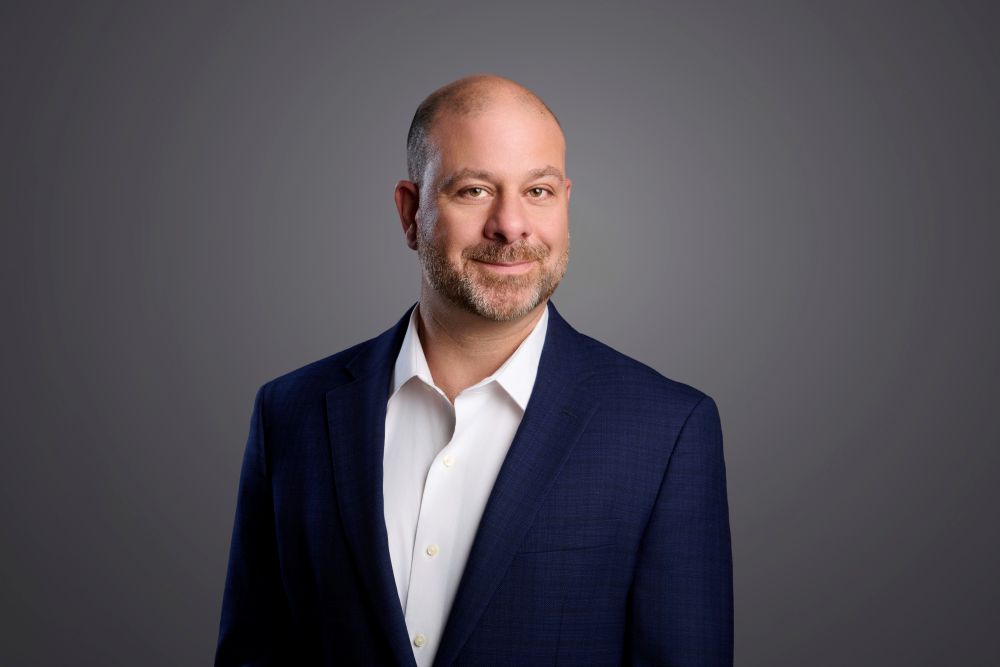
Chris Gregory is Vice President of Product Management for the Kratos Space, Training and Cybersecurity Division. In this role, Chris focuses on products to serve the Space Domain Awareness, Space Superiority, and Space-to-Ground Communications markets. He is driving the vision for products that implement core RF processing and analytic technology on flexible platforms for military, intelligence and commercial mission success.
Chris is responsible for maximizing the value of RF data by applying data science, data fusion and tip-and-cue tactics to provide answers and mission insights. This results in concise, summarized information and predictive analytics presented in a mission-specific context, enabling decision makers and warfighters to anticipate and mitigate danger before it occurs.
Chris focuses on space-to-ground communications solutions that are versatile and orchestrated to serve the varying needs of satellites in LEO, MEO, GEO, and Cis-lunar space. Advanced software-based communications solutions allow ground stations to serve a variety of missions automatically and with high reliability.
Prior to joining Kratos, Chris started his career in engineering development and leadership in the satellite communications market with VT iDirect and Hughes network systems. Most recently, he spent 7 years at HawkEye360 developing signal processing and space technology to geolocate RF emitters from small satellites in LEO.
Chris holds a Master of Science in Electrical Engineering from Johns Hopkins University and a Bachelor of Science in Electrical Engineering from George Mason University.
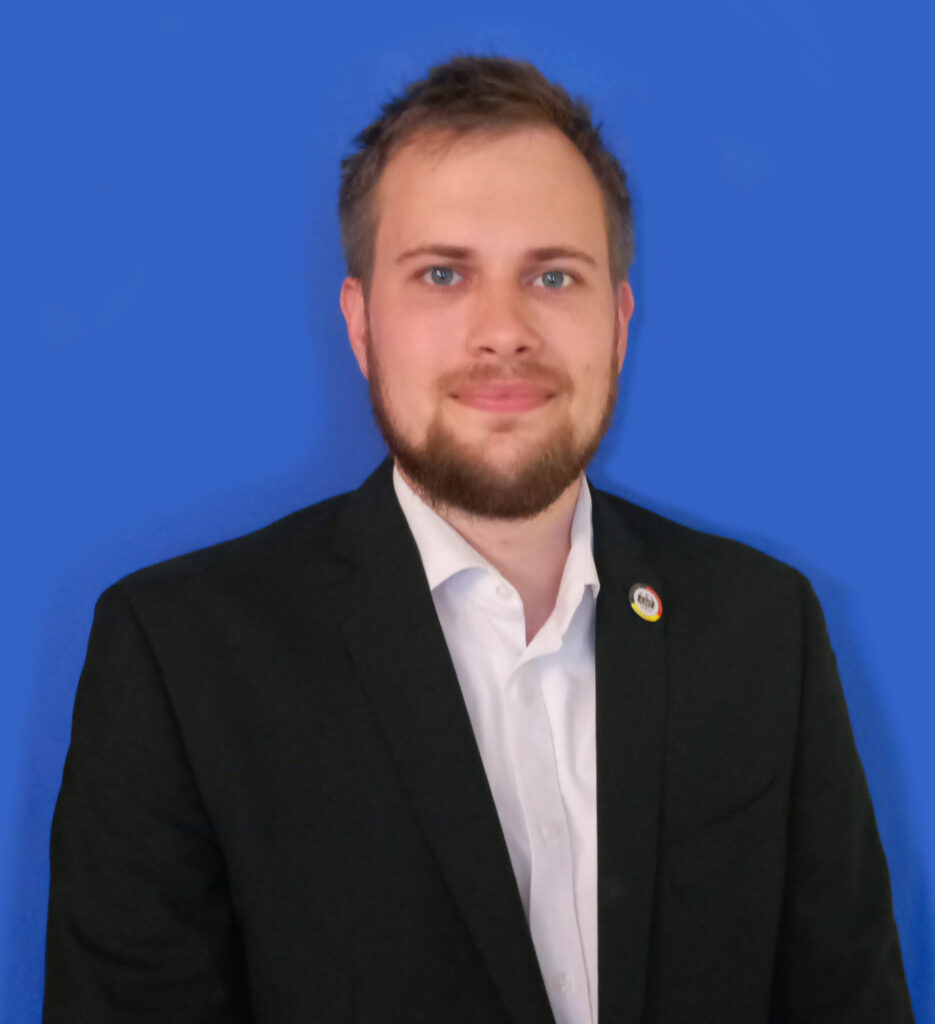
Florian Göhler is a Technical Officer at the Federal Office for Information Security (BSI) in Germany. Florians work focuses on Cybersecurity threats to space systems. This includes the
development of Cybersecurity requirements and standards for space systems, international cooperation and support for governmental space projects. Additionally, he coordinates a joint expert group for Cybersecurity in space that brings together stakeholders from industry, government and academics.
Florian has been working with the BSI since 2018. He has degrees in Computer Science and Applied IT Security. During his studies, he gained hands-on experience in identifying software vulnerabilities in satellites.

Dr. Gabrielle Hedrick is an Aerospace Engineer at the MITRE Corporation with over 10 years of prior NASA experience in planetary exploration. At MITRE, she focuses her research on space traffic coordination, launch and reentry, human spaceflight, and cislunar space, including security in cislunar as part of the Space Information Sharing and Analysis Center (Space ISAC). After spearheading its creation, she became chair of its Cislunar Affinity Group that doubles as the Security Working group for the American Institute of Aeronautic and Astronautic (AIAA) Cislunar Ecosystem Task Force. She led the development of a course series on cislunar challenges and opportunities in partnership with the Space ISAC and AIAA, that include topics such as space weather, space law, and lunar geodesy. She is also an Emergency Medical Technician, firefighter, and ski patroller, expertise that she leverages as part of her research on safety of humans in space. She has a master’s degree in mining engineering, for which she spent a year mining gold in the Amazon Rainforest, a master’s degree in Planetary Sciences, focused on long-term planning for the NASA Mars rover Opportunity, and a PhD in Aerospace Engineering with a dissertation centered around terrain-aware path planning for the NASA Mars Sample Return rover.
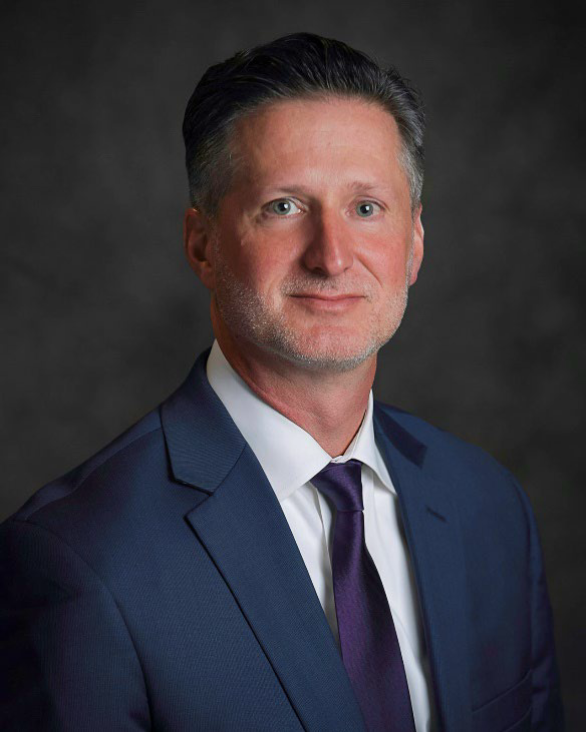
Mark Henrie is Deputy General Manager of Missile Defense Group, and Deputy Program Manager for the Integrated Research & Development Enterprise Solutions (IRES) contract. IRES is a $4.6B, eight-year contract that supports concurrent testing, training and operations conducted by the Missile Defense Agency with engineering, test planning and execution, information technology, and facility operations and maintenance.
In 1992, Mark was commissioned in the U.S. Army as a Signal Officer. He served in a number of company grade leadership roles before transitioning into the Army Acquisition Corps. Mark served as Assistant Program Manager responsible for the Installation Information Infrastructure Modernization Program (I3MP) with a five-year program value of $2.6B delivering IT services for enhanced Army power projection capabilities throughout the continental United States. Mark authored a restructure plan of I3MP to better support a transformed Army, coordinated and briefed it to the Headquarters U.S. Army, and garnered $1.4B in additional resourcing across a five-year period.
Mark first joined the Missile Defense Agency (MDA) in 2005 and managed a task order in the systems engineering, planning, execution, analysis, and reporting of Missile Defense System (MDS) test events with an annual budget of $40M+. In 2009, he led a campaign that accomplished a live intercept of an Aegis ship launching remotely on space tracks, along with other technological firsts integrating space tracks into fire control loops.
Mark retired from this position after 23 years of service and joined Jacobs in 2015 to help win the IRES contract. With that successful win in 2017, Mark was assigned Director for Events and Warfighter Support (EWS). EWS successfully planned, integrated and executed over 100 missile defense ground tests, flight tests, wargames, and exercises; transitioned test enclaves into the MDA CIO’s global enterprise; and generated the highest CPARs and profitability in IRES. He was promoted to IRES Deputy Program Manager in 2022, and has increased CPAR scores, profitability, and delivery of enterprise projects across the program.
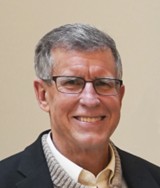
Dan Hirleman is Professor of Mechanical Engineering at Purdue University and Director of the Data Mine of the Rockies. He is committed to creating and scaling models for experiential learning that provide transformative opportunities and a margin of excellence for students beyond traditional university curricula. The Data Mine of the Rockies and the Global Engineering Alliance for Research and Education (GEARE) are case studies.
Hirleman previously served as Purdue’s: inaugural Chief Corporate & Global Partnerships Officer; Executive Director for International Advancement; Senior Intellectual Property Officer; and Senior International Officer. Prior to that, and beyond faculty appointments, his academic assignments included: Associate Dean for Research as well as Chair of the Mechanical & Aerospace Department at Arizona State University; the William E. and Florence E. Perry Head of the School of Mechanical Engineering at Purdue; and the 2nd Dean of the School of Engineering at the University of California, Merced.
Hirleman has over two hundred publications, seven U.S. patents, and presented eighty invited lectures in fourteen countries. His teams developed ten technologies that are licensed and/or are deployed in commercial products. He received the Hon. George Brown Award for International Scientific Cooperation and the ASME Charles Russ Richards Memorial Award (given annually for outstanding achievement in mechanical engineering) and chaired the Advisory Board of Engineers for a Sustainable World. He enjoys spending time with his family and playing racquetball.
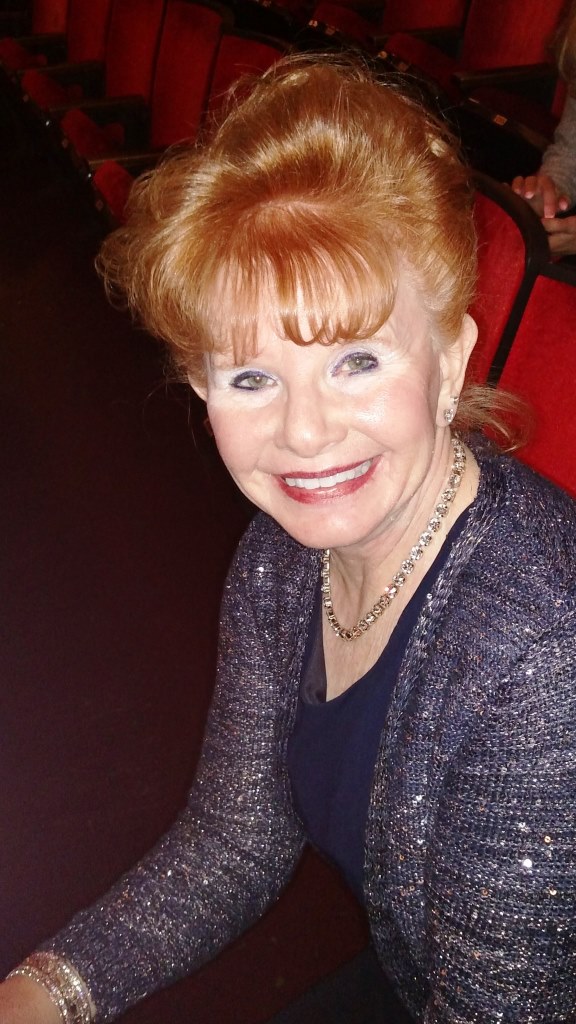
Dr. Shawana Johnson, GISP, is a subject matter expert in commercial GIS and Geospatial Intelligence in leading edge technology for space, air and land sensors, 5G and Sub 6 communications technology with applied science expertise in Global Food Security, Water Resources, Energy and National Security. She was awarded a certificate of completion for the Senior Managers in Government Program, 8/2019, John F. Kennedy School of Government at Harvard University, Executive Education and obtained her Doctorate Degree in Management (focused on Economics and Technology Transfer) from the Weatherhead School of Business from Case Western Reserve University, Cleveland, OH.
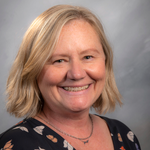
Terri Johnson Akse, MS, CEH is an Assistant Teaching Professor of Cybersecurity Management at the University of Colorado Colorado Springs (UCCS), where she delivers undergraduate and graduate courses focused on applied cybersecurity, governance, and critical infrastructure protection. With more than 25 years of experience spanning industry and academia, she has held leadership roles such as Director of Network and Systems Services at Colorado College and played a pivotal role in launching the first Associate of Applied Science degree in Cybersecurity at Pikes Peak State College (PPSC).
A recognized advocate for cybersecurity education and workforce development, Terri has led and contributed to numerous initiatives supporting diversity in tech. Her involvement includes national committee service with Women in Cybersecurity (WiCyS), teaching GenCyber camps for both UCCS and PPSC, and collaborating with the College Board to advance cybersecurity curriculum at the high school level.
Terri is also a co-developer and instructor of the SpaDoCs (Space Domain Cybersecurity) framework in partnership with TSTI, and she teaches in UCCS’s Space Cybersecurity Enterprise Management Graduate Certificate and MBA emphasis program. She is currently completing her Doctorate in Business Administration (DBA) in Cybersecurity Management at UCCS, with expected completion in 2026.
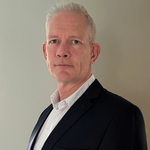
Kev is a director-consultant within CGI’s Space Defence and Intelligence Business Unit. Since 2017 Kev has been the enterprise, business-change, and the programme coherence lead for the UK Ministry of Defence and UK Space Agency’s National Space Operations Centre Space Domain Awareness and C2 capability programme.
An enterprise architect, Kev is currently helping the Royal Air Force and UK Space Command design, implement and operate architecture practices to govern and assure the design, delivery and continuous innovation of business operating models and architecure practices to support capability portfolio planning in order to optimise the integration of digital systems, and operational coherence across all of the five operational domains. Since Jul 24 Kev has been co-leading the design, development, implementation and management of a UK industry and Academia initiative to formally support and contribute to Space ISAC’s global collective defence mission.
Kev operated Tornado GR1/4 and F-18 Hornet strike/attack aircraft for over 15 years for the RAF and USN. He is a Qualified Weapons and Electronic Warfare Instructor, and has an MSc in aero-space systems and served as the UK’s Mission Systems Flight Test Lead for the F35 DT at Pax River NAS. On his return to the UK in 2010 Kev attended and graduated from University of Warwick’s Executive MBA in 2013.
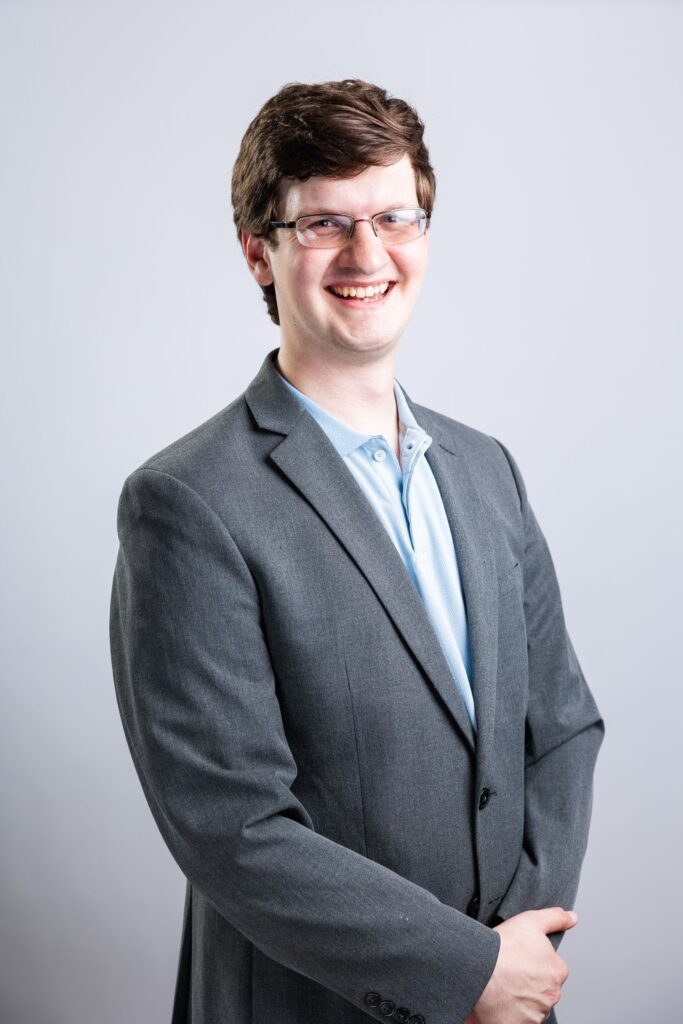
Adam Kall is Co-Founder & Director of Science at Kall Morris Inc (KMI), established in 2019 with 2 other alumni of Northern Michigan University (NMU) where he graduated magna cum laude with degrees in Mathematics and Computer Science, with a Master’s in Data Science from Elmhurst University. Adam’s experience and interest in technology provide a strong foundation for his leadership of the Mission Planning, Spacecraft Operation, and Mission Control teams at KMI delivering workable, real-world solutions; driving development of solutions and software for operations in space. Adam and one of his co-founders was recognized by Forbes 30 under 30 for Transportation & Mobility in 2024.
At KMI, he has overseen the growth from bootstrapping co-founders to a startup small business that recently returned demonstration hardware after over 200 days in orbit aboard the International Space Station. Over half a dozen testing sessions, the KMI-led effort completed 170+ record-breaking capture cycles and validated critical aspects for the future fleet of radically-optimized mobility spacecraft. The demonstrations of REACCH are a public display of the functional, efficient, and effective set of solutions at KMI focused on Relocation as a Service (RaaS): a vital aspect of in-orbit servicing and space sustainability that supports End-of-Life Services, Orbit Change Maneuvers, and Active Debris Removal (ADR).
KMI is an in-space logistics company dedicated to sustainable orbital operations by providing innovative relocation services in space. Based in Marquette, MI, KMI is leveraging unconventional approaches, first principle thinking, and practiced scientific rigor to develop exclusive patented hardware, essential software, and strategic partnerships through contracts with NASA, USSF, USAF, and more. Through these efforts, KMI provides solutions to extend & enhance vital missions in orbit for legacy, modern, and future assets. This decreases the risk to operators and assets while increasing the options for our customers in the commercial, civil, and national security space areas, and overall strengthens the situation for all stakeholders in #KeepingSpaceClearForAll.
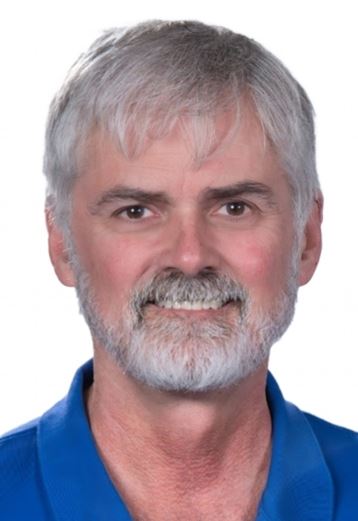
Craig J. Kief is the Director of Innovation at UNM’s COSMIAC Research Center, where he leads proposal development, contracting, and strategic growth initiatives. Retired from the U.S. Air Force, he is also a retired research faculty member in UNM’s School of Engineering, bringing over 32 years of deep expertise in computer engineering and satellite communications—spanning voice and data networks, embedded software, system integration, satellite ground station operations (running 24/7), and testing/debugging logistics. He holds both a B.S. and M.S. in Computer Engineering from UNM, has published and taught extensively in digital and programmable logic, satellite design, and system verification/validation, and is recognized as an IEEE Senior Member.
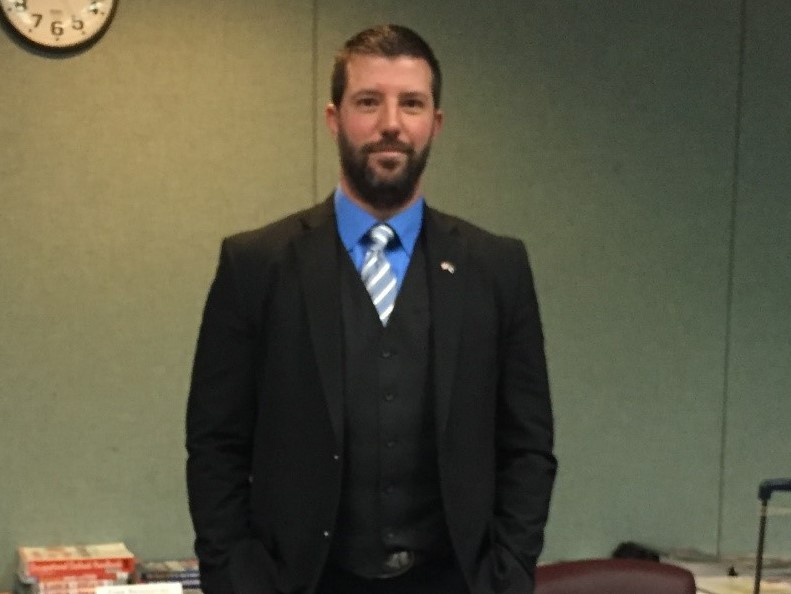
Matt “Tri Star” Lamanna is a retired Master Sergeant, USAF. During active duty Matt spent 15 years as a Signals Intelligence Analyst, and 5 years offensive cyber operator/cyber threat intelligence analyst. For the past 7 years at Deloitte he has been a defensive cyber operations integration expert supporting Space Systems Command, Prototype and Innovation Delta on Kirtland AFB, NM. Matt also has experience as the deputy program manager for a USSF SPICES contract overseeing a cyber threat intelligence team supporting the USSF Delta 6 security operations center. He is also part of the PMO for Deloitte’s US Cyber Capture the Flag portfolio. Lastly, Matt it a Cyber Threat Intelligence Analysis (CTIA) curriculum developer and instructor as part of Deloitte’s Advanced Cyber Training portfolio.
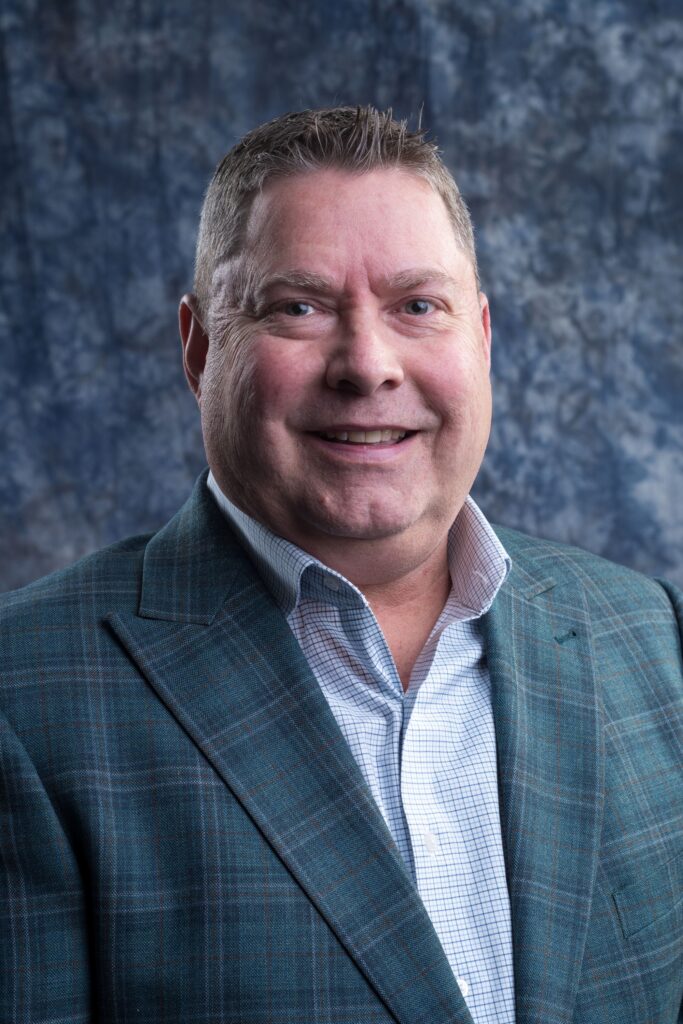
Norm Laudermilch joined space technology company Maxar as the Chief Information Security Officer in April 2024. Over a 30-year career, he’s been at the forefront of cybersecurity and artificial intelligence, including classified cyber and space environments. Norm helped build the cybersecurity-as-a-service industry at Riptech, acquired by Symantec, where he led the design of first-of-a-kind managed security products used by more than 5,000 enterprises today. Norm joined Sophos following its acquisition of Invincea, where he was Chief Operating Officer. There, his team built an AI-based malware detection platform that is still protecting over 100M users today. Previously, Norm was CISO of the cloud computing division at Verizon, where he spearheaded the company’s early enterprise cloud innovations. He was also a pioneer in the mobile security space, co-founding mobile security provider Trust Digital and leading technology development before the company’s sale to McAfee. He began his career at the National Reconnaissance Office (NRO), where he held a variety of cybersecurity roles over nearly a decade.
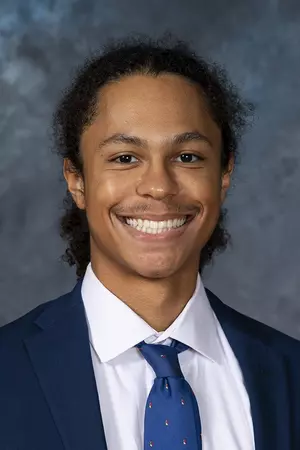
Samuel Lefcourt is the co-founder of ReveillAI, an AI specialty company protecting critical infrastructure from malicious and unintentional radio frequency interference (RFI). ReveillAI doesn’t just monitor the spectrum, they predict anomalies, detect threats, and enhance operational resilience. This AI ecosystem enables spectral domain awareness, giving mission operators a decisive advantage.
Samuel is the Co-Chair of the AI/ML community of interest at the international Space ISAC, guiding innovative policy surrounding AI deployment through collaboration with government and commercial members in the aerospace domain for risk mitigation. He obtained his Masters in AI at 18 years old and will complete his PhD in AI in 2026. Samuel is a deep learning researcher. He has spearheaded or aided a variety of AI defense research projects funded by government entities – Domestic Nuclear Detection Office, Department of Defense, Air Force Research Laboratory, National Institute of Standards and Technology.
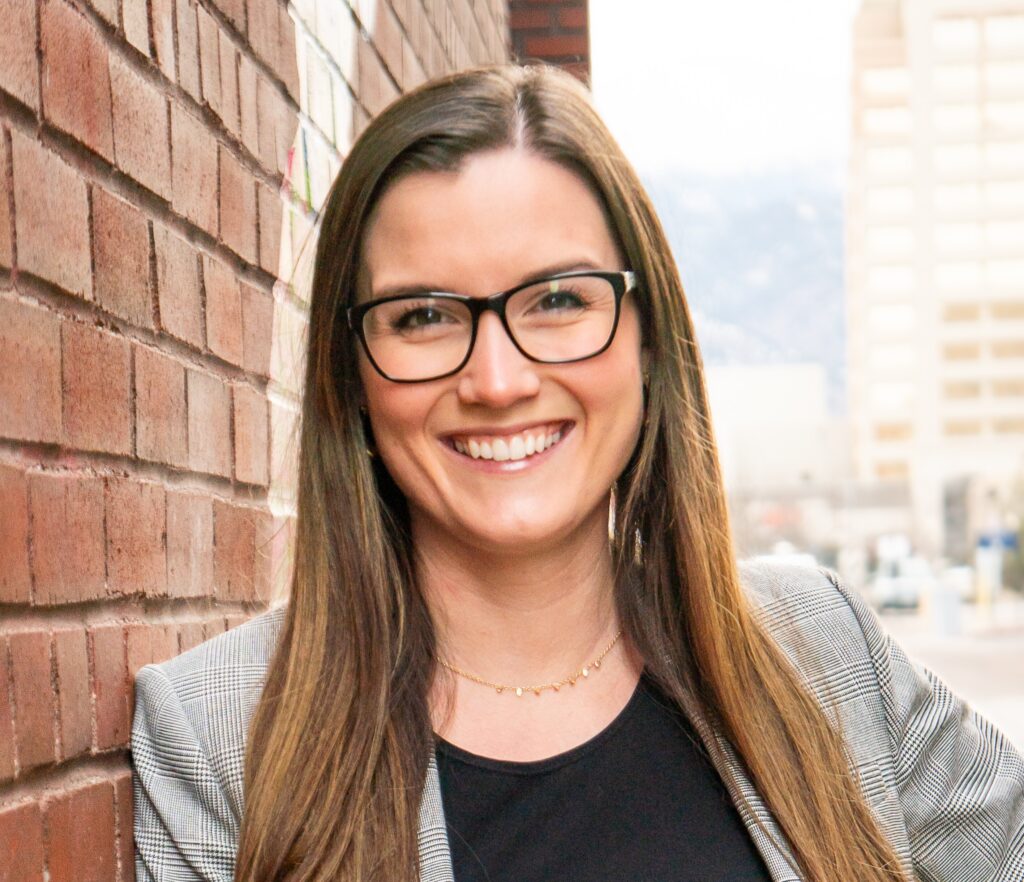
Mairead Levison studied Political Science, Russian Language, and Leadership at Virginia Tech, where she was a member of the Corps of Cadets and served as Regimental Commander, leading 1,200 cadets. She began her career at the National Ground Intelligence Center as a Russian Intelligence Analyst, authoring intelligence products on Russian ground systems, emerging technologies, and clandestine operations, and spearheading cross-agency collaboration.
She went on to earn a Master of Science in National Security with a focus on Homeland Security from Liberty University, graduating with high distinction. In 2022, Mairead joined the Space Information Sharing and Analysis Center, where she now serves as Deputy Director, bringing strategic leadership and expertise in international relations and national security to the forefront of the space sector.
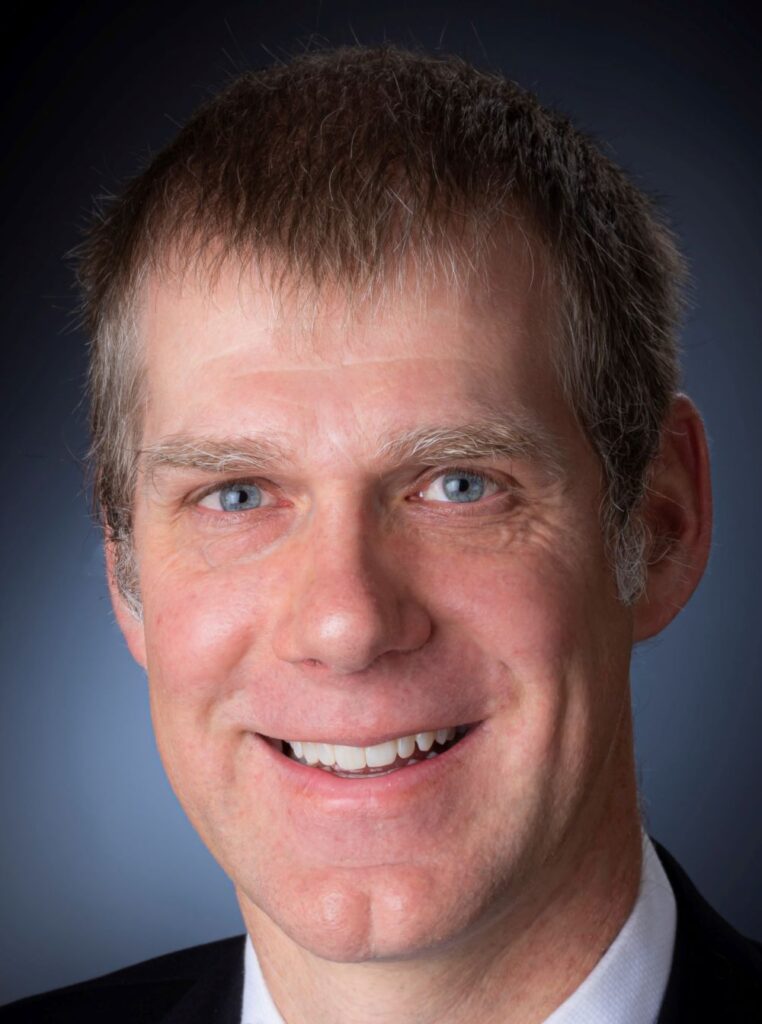
Brian Maguire is the Senior Director of Business Integration and Deputy to the Head of Space for Airbus US, Space & Defense, Inc. Within this role, he is responsible for the execution and growth of the ARROW 450 platform, Final Assembly Line (FAL) improvements at the Merritt Island FL facility, and integration streamlining within the line of business. Brian works closely with operations, engineering, and the security organizations in implementing secure practices within both the FAL and product line. Airbus US, Space & Defense, Inc. is committed to growing manufacturing capability in the U.S., and our government customers can leverage our commercial capability to develop proliferated orbit small satellite constellations.
Prior to coming to Airbus US Space & Defense, Brian spent time as the Senior Director of Aerospace Engineering at Loft Orbital and multiple roles with Engineering and Security & Mission Assurance at Ball Aerospace.
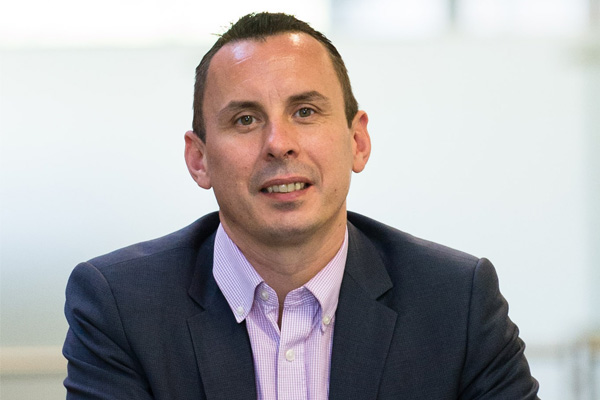
Professor Carsten Maple is the Director of the NCSC-EPSRC Academic Centre of Excellence in Cyber Security Research and Professor of Cyber Systems Engineering at the University of Warwick. He is also Director for Research Innovation at EDGE-AI, the National Edge Artificial Intelligence Hub, and a Professor and Fellow of the Alan Turing Institute, where he is a principal investigator on a $9 million project developing trustworthy digital infrastructure. Carsten is also a Research Affiliate at Judge Business School, and is a departmental visitor at the Computer Laboratory for 2025-2026, both University of Cambridge. He was formerly the co-director of the UK’s Future AI and Robotics Hub, where he led on cyber security. He has an international research reputation, having published over 450 peer-reviewed papers. His research has attracted millions of pounds in funding and has been widely reported through the media.
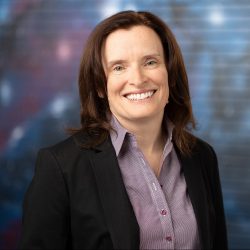
Dr. Martin joined Astroscale U.S. in August 2019 as Executive Vice President. She brings many years of experience in space technology management, operations, and engineering to support the foundation and growth of Astroscale U.S.
Dr. Martin previously held the position of the Director, Orbital Solutions at General Atomics Electromagnetic Systems (GA-EMS). She was responsible for the management and technical performance of the engineering staff and delivery of projects, including planning and managing technical and programmatic solutions to ensure quality, business, and financial objectives were met.
Prior to joining GA-EMS, Dr. Martin was the Chief Operating Officer at Surrey Satellite Technology US, where she led the Surrey project management and engineering teams. As a member of the Surrey Satellite US Executive Team, Dr. Martin managed the bidding, negotiation, and execution of projects, and was responsible for ensuring the company’s cost-effective methods were appropriately applied to the execution of programs.
Dr. Martin transferred to Surrey Satellite US from Surrey Satellite Technology Ltd. in the United Kingdom, where she held several positions including the Head of Telecommunications and Navigation business unit, encompassing the Galileo payload programme. Prior to Surrey, Dr. Martin was a Project Manager and Scientist at QinetiQ.
Dr. Martin earned a Master of Science in astrophysics and a Doctorate in mathematics and computational sciences from the University of St. Andrews in Scotland. She loves to explore and adventure the mountains in Colorado.
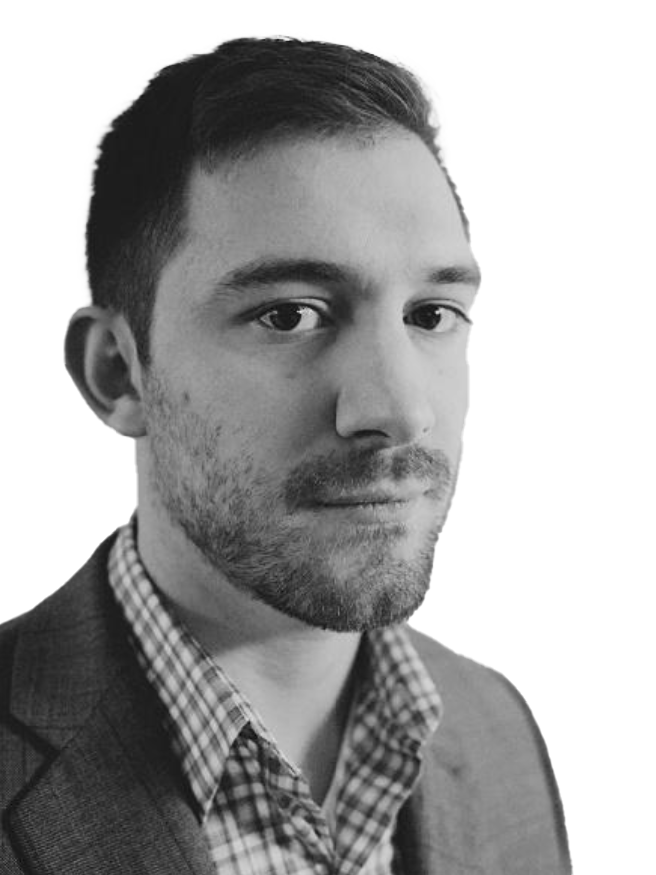
With a background in incident response, forensics, and threat hunting, Derek brings over a decade of hands-on cybersecurity expertise to the stage. From responding to some of the most high-profile cases in U.S. history to teaching at BlackHat, he’s mastered the art of translating complex technical insights into actionable strategies for every audience.
As Vice President of Field Engineering at NetRise, Derek leads the teams responsible for guiding NetRise customers through every stage of their journey – from initial solution design and implementation to ongoing technical success. He ensures organizations gain maximum value from the platform by aligning technical outcomes with strategic objectives.

Sean O’Connor is the Founder of Violetshift UK Ltd, a specialist consultancy advising industry, international bodies, and governments on the strategic opportunities, risks, and hazards of investing in space and next-generation technologies. He is also the Co-founder of ScenarioAI, a tech start-up developing two novel large language models (LLMs) to support defence decision-making, cross-domain wargaming, and strategic analysis.
A retired Royal Air Force officer, Sean has deep expertise in capability planning and international defence policy. He is a recognised authority in space operations, multi-domain integration, joint intelligence, surveillance and reconnaissance (ISR), uncrewed air systems (UAS), and integrated air and missile defence (IAMD).
In his final role with the UK Ministry of Defence (MOD), Sean served in the Finance and Military Capability Directorate, first as Head of Joint Capability Plans and later as Head of Space Capability Planning. He led the development of new space capabilities for UK Defence and authored a foundational thesis for the MOD’s Strategy Development Group. His work shaped a national innovation framework for the UK Space Enterprise, which became the foundation of the UK’s National Space and Defence Space Strategies published in 2021.
As Head of the MOD’s Joint Plans Directorate, Sean translated defence policy into strategic capability development, setting priorities and balance of investment recommendations. He drove greater coherence across cyber, ISR, and missile defence programmes, collaborating across government, industry, and international partners to shape proposals for the UK’s Integrated Review. He received a Director General’s Commendation for uniting teams to align complex MOD programmes.
Earlier, Sean served as Head of the J35 Division at NATO Joint Force Headquarters Brunssum, leading 78 multinational staff. He integrated five previously siloed teams to improve coordination across strategic operations, earning a 4-star commendation for enhancing synchronisation in a complex operational environment.
He also commanded a coalition special operations forward operating base in Afghanistan and later led the NATO Unified Training Advisory Group in Kabul. His joint operational experience includes leading a UK Joint Forces specialist operations and reconnaissance team responsible for non-combatant evacuations in the Levant from 2010 to 2013. He played a key role in evacuating 3,000 civilians from Libya and worked with UK agencies to assess regional risks and coordinate support.
In 2012, Sean was deployed to Damascus to provide direct crisis support to the British Ambassador. As the Syrian civil war escalated, he led the evacuation of 30 British civilians and 18 diplomats. For his leadership and dedication to preserving life and enhancing the UK Government’s crisis response across the Middle East, he was appointed an Officer of the Most Excellent Order of the British Empire (OBE).
Sean holds a Master of Arts (MA) in Defence Studies from King’s College London and a Master of Philosophy (MPhil) in International Relations from the University of Cambridge.
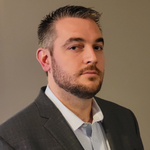
Jacob Oakley, PhD, DSc, is a cybersecurity journeyman, author, speaker, and educator with two decades of experience. As Technical Director for SIXGEN he provides Vision, strategy, and execution of digital warfare, space system cybersecurity, and offensive cyber programs. He serves on the Steering Committee for the IEEE Space System Cybersecurity Standards Working Group and is the Space Lead for the DEFCON Aerospace Village. An adjunct professor at Embry-Riddle Aeronautical University writing/teaching graduate courses on space cyber, he also developed and teaches a satellite hacking course at Black Hat USA and internationally.

Bob brings over three decades of combined senior operational and acquisition development leadership expertise in National Security Space supporting the U.S. Space Force, U.S. Air Force, and other government organizations for operations, requirements, training, program execution, and independent assessments.
Serving over 28 years in the U.S. Air Force, Bob held numerous assignments in executive leadership, operations, program management, policy, and legislative liaison duties. He commanded multiple operational units and was dynamically engaged across a broad spectrum of DoD weapon systems and technologies involving Interagency and International partners for satellite command and control; space launch and range; communications; space control; and intelligence, surveillance, and reconnaissance.
A retired U.S. Air Force Colonel, Bob holds a Master’s degree in Space Operations from the Air Force Institute of Technology, an MBA (Aerospace) from Embry-Riddle Aeronautical University, and a Bachelor’s degree in Aerospace Engineering from the University of Southern California. Additionally, he was a National Security Fellow at the Harvard University John F. Kennedy School of Government.
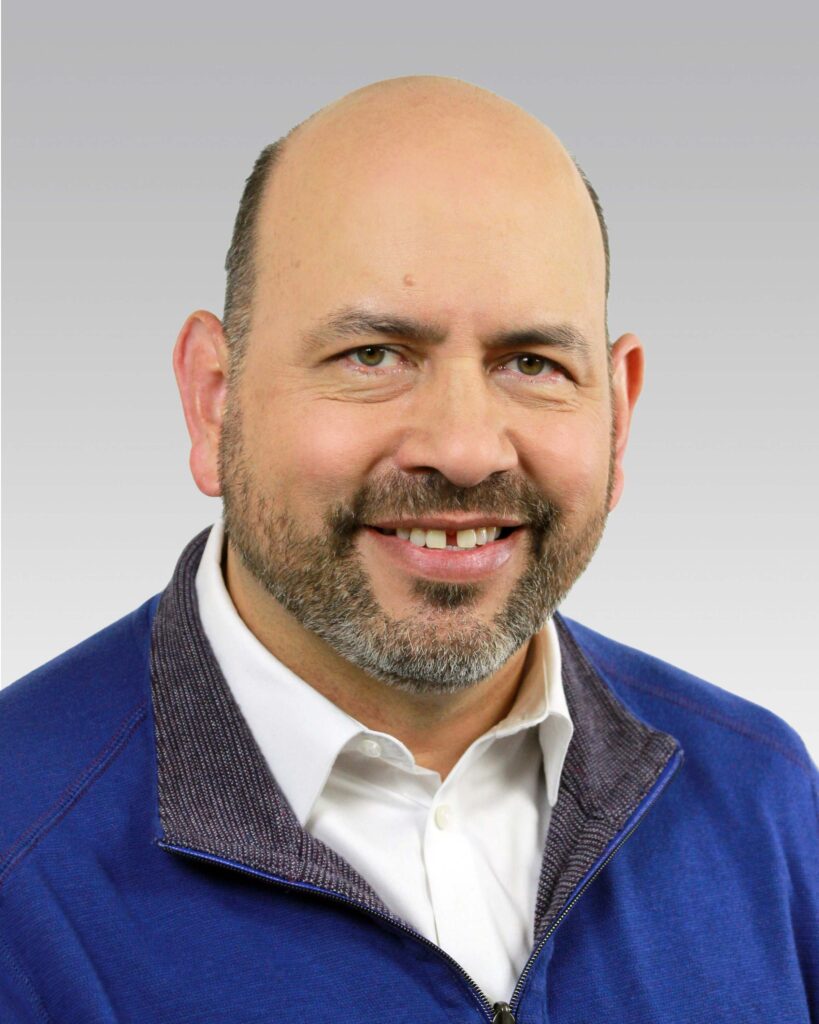
Dr. Peña is a Technical Fellow at L3Harris Technologies and its corporate Board Member for the Space Information Sharing and Analysis Center, and chairs its Member and Benefits Standing Committee. Tomás has 32 years of leadership in military cyberspace operations, systems engineering, advanced programs, and project management. Following his 20-year Air Force career where he retired as a Lieutenant Colonel and Master-level Cyberspace Operator, and helped to stand up U.S. Cyber Command and led special technical operations, Tomas worked as an Intelligence and Cyber contractor for 12 years in Washington D.C., Maryland, and Colorado. In his role at L3Harris Technologies, Tomás is also the Space & Airborne Systems (SAS) Chief Technologist for Cyber Operations. There, his responsibilities include leading cyber innovation and research, implementing cyber threat-based cybersecurity engineering, and leading programs’ full spectrum cyber readiness. Tomás is also the Founder and President of Parallax Cyber LLC, a minority and disabled veteran-owned small business providing education and training of cyber operations and space systems cybersecurity. He holds a Bachelor of Science in Computer Science, a Master of Science in Computer Information Systems, and Doctor of Science in Cybersecurity. Tomás maintains the following professional certifications: (ISC)2 Certified Information Systems Security Professional (CISSP); International Council on Systems Engineering (INCOSE) Certified Systems Engineering Professional (CSEP); and the Global Information Assurance Certification (GIAC) for Reverse Engineering Malware (GREM). He is also an IEEE Senior Member, and Information System Security Association (ISSA) Fellow.
https://www.linkedin.com/in/tomaspena1
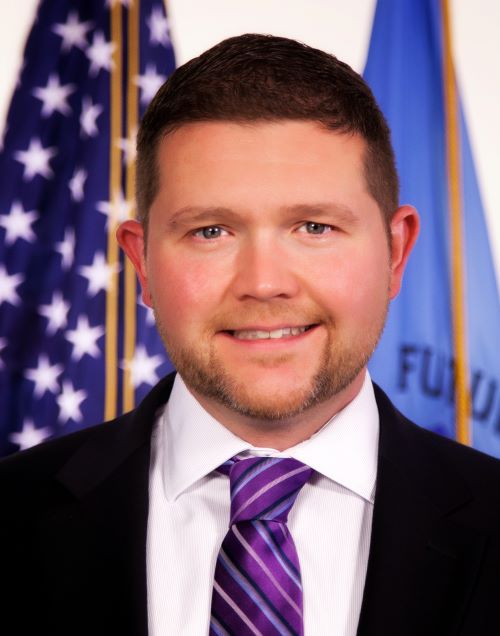
George Pullen is a leading economist and a key voice on the future of American innovation in deep technology and the space economy. He is a hands-on strategic advisor who translates complex financial and technological shifts into clear, actionable insights for leaders, innovators, and the public.
As the Chief Economist of MilkyWayEconomy, a D.C.-based think tank and consultancy, George draws on his extensive experience from banking, investing, and senior government roles. He is the author or contributor to eight books and numerous papers, offering incisive analysis on everything from finance and alternative markets to the future of the space industrial complex.
A highly sought-after conference speaker and podcast guest, George’s influence extends beyond his books and consultancy. He serves as an investor, board member, and advisor to several small and medium-sized deeptech and space companies, actively helping to build the industries he writes about.
George holds teaching appointments at UNH Law School and Columbia University, and is a frequent guest lecturer at institutions like the Eisenhower War College and his alma mater, Johns Hopkins. He enjoys instructing on financial economics, blockchain for fintech, rare earth and critical material markets, biotech and life science business acceleration, due diligence and risk modeling, finance for startups, and his signature course on the fifth industrial revolution: space economy.
He also serves as an economics facilitator for several U.S. Space Force groups and collaborates on space industrialization initiatives, including through a CRADA with SpaceWERX, cementing his role at the intersection of business, government, and technology.
George Pullen doesn’t just study the future — he helps build it. To book him for a speaking engagement or to follow his analysis, connect with him on social media or reach out to MilkyWayEconomy.
George is always a US Marine. Frequently traveling, he splits his time between DC, Maine, and airports. He has a beautiful wife and four wonderful children, and he hopes at least one of them becomes an astronaut.
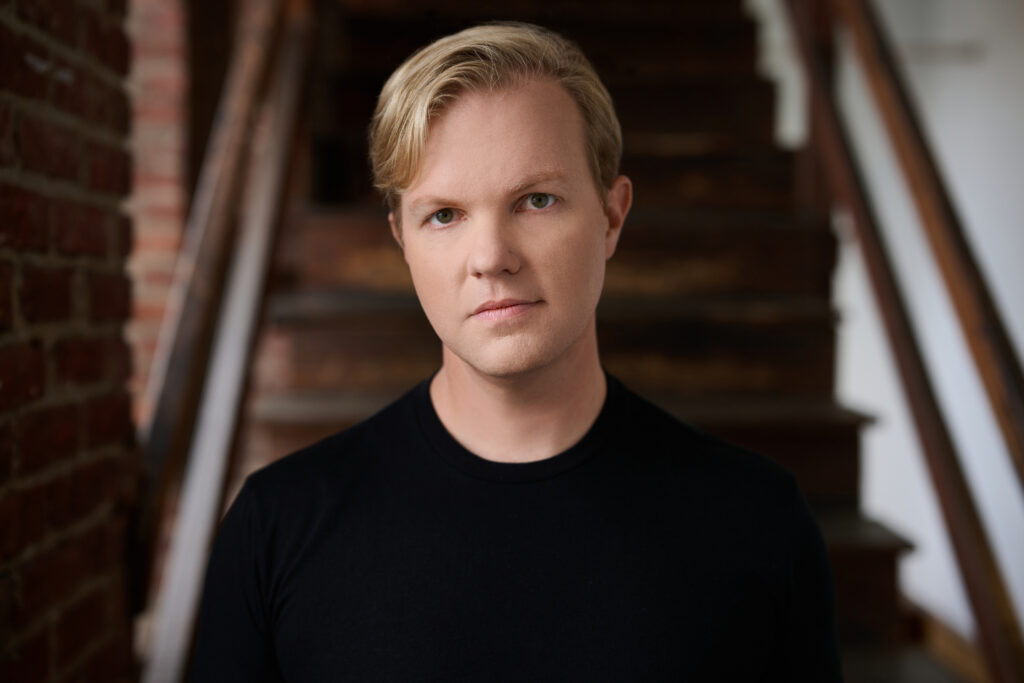
Nick Reese is the Cofounder and COO of Frontier Foundry Corporation. He most recently served as the first ever Director of Emerging Technology Policy at the US Department of Homeland Security where he advised the White House and senior Cabinet officials on national security implications of emerging technologies. He is the author of the multiple White House, Cabinet-level, and other federal government policies, Executive Orders, National Security Memoranda, and strategies related to emerging technologies.
With over 20 years of experience in national security, Nick’s career spans direct military service in multiple Global War on Terrorism campaigns, covert operations in the US intelligence Community, and technology policy making. He is the author of the DHS Space Policy and contributor to multiple White House space policies. A frequent Space ISAC collaborator, Nick created and ran the 2024 Saving Selene tabletop exercise and is the coauthor of the Cislunar Incident Response Framework. From federal policy making to building companies to teaching, Nick is focused on the sustained safety and security of the space economy and the delivery of actionable solutions to the most difficult challenges.
Nick is an adjunct professor of emerging technology at the NYU Center for Global Affairs where he teaches graduate level courses on National Security and Emerging Technology and Connected Communities.

Ryan is a leader in Deloitte & Touche LLP’s Cyber Risk and Space practice where he focuses on cyber operations capabilities and services for clients operating in the non-traditional IT and mission system space. Ryan served in the Marine Corps and has over 25 years of experience in IT and cybersecurity. He lives in Colorado Springs with his wife and three daughters, loves to RV all over the USA, and has a passion for helping veterans as they transition into civilian life.

Raymond N. Schouten (“Ray”) is the Chief Executive Officer and Chief Architect for Secured Quantum Services.
From early days, Ray has possessed an internal drive to learn and challenge the construction and operation of structure – building, vehicles, systems, space; typically leading to an attempt to understand and improve the design – young person’s arrogance! That drive manifested into an education as Aviation Technician and later aerospace engineering from the technically recognized Northrop University, Los Angeles, and degree in Business Administration with Marketing minor from National University, San Diego. He attributes much of these internal drives to a colorful family history of achievers including: Phd /Professor of Economics, Sr. Director (computer) Systems Engineering, Vice President Engineering, Commander – USN, Director Manufacturing, Judges, and Chief Architect National Railway System (the advanced tech of the day!).
Recognizing the potential for even greater benefit, Ray has applied 17 years of efforts to solve the problem of data and systems security in cloud and the evolving digital era. He is pioneering a new field of Digital Economics, commercializing the power of Quantum technologies to security and computing to further benefit of global digital economy.
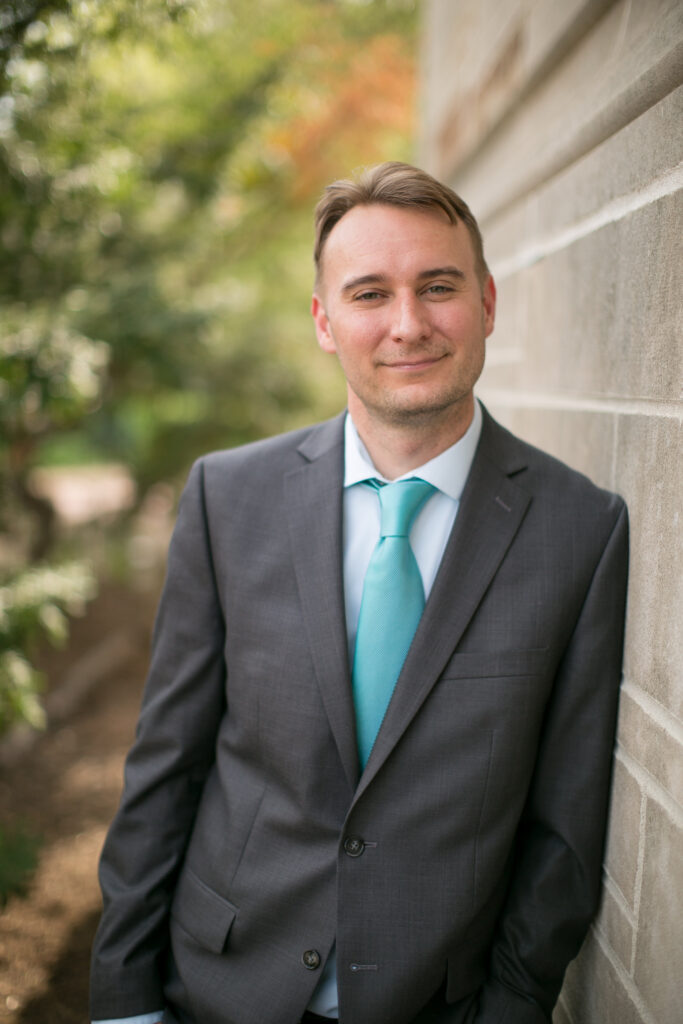
Professor Scott J. Shackelford is the Provost Professor of Business Law and Ethics at the Indiana University Kelley School of Business. He serves as the Executive Director of the Ostrom Workshop and the Center for Applied Cybersecurity Research. He is also an Affiliated Scholar at both the Harvard Kennedy School’s Belfer Center for Science and International Affairs and Stanford’s Center for Internet and Society.
Professor Shackelford has written more than 100 articles, book chapters, essays, and op-eds for diverse publications. Similarly, Professor Shackelford’s research has been covered by an array of outlets, including Politico, NPR, CNN, Forbes, Time, the Washington Post, and the LA Times. He is the author of Forks in the Digital Road: Key Decisions in the History of the Internet (Oxford University Press, 2024), The Internet of Things: What Everyone Needs to Know (Oxford University Press, 2020), Governing New Frontiers in the Information Age: Toward Cyber Peace (Cambridge University Press, 2020), and Managing Cyber Attacks in International Law, Business, and Relations: In Search of Cyber Peace (Cambridge University Press, 2014). He is also the lead editor of the first volume dedicated to cyber peace entitled Cyber Peace: Charting a Path Toward a Sustainable, Stable, and Secure Cyberspace (Cambridge University Press, 2022).
Both Professor Shackelford’s academic work and teaching have been recognized with numerous awards, including a Harvard University Research Fellowship, a Stanford University Hoover Institution National Fellowship, a Notre Dame Institute for Advanced Study Distinguished Fellowship, the 2014 Indiana University Outstanding Junior Faculty Award, the 2015 Elinor Ostrom Award, and the 2022 Poets & Quants Best 40-Under-40 MBA Professors Award.
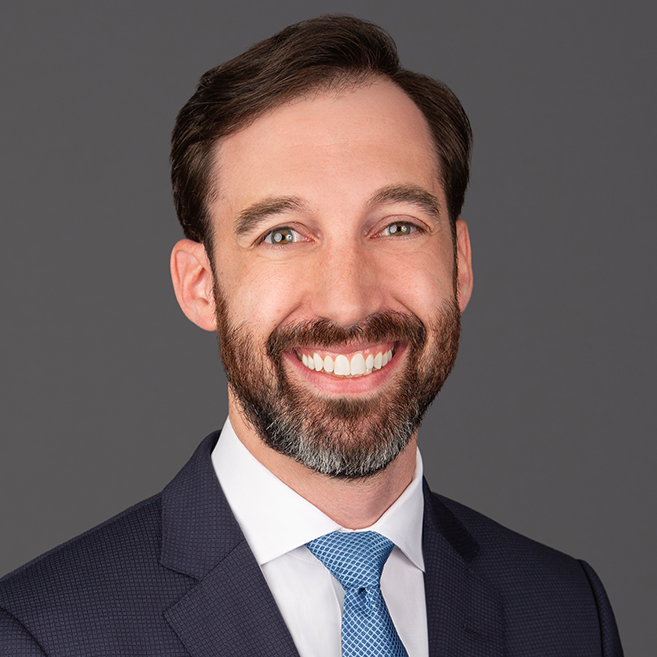
Evan Sills is a partner in the International Trade and National Security Practice Group in the Washington, D.C., office of Kirkland & Ellis LLP. Evan has extensive experience in matters involving the Committee on Foreign Investment in the United States (CFIUS) as well as cybersecurity, data security and regulatory compliance issues.
Prior to joining Kirkland, Evan served as counsel at a boutique law firm concentrating on U.S. national security regulatory processes. Previously, Evan served in the Department of Justice (DOJ) as part of the Foreign Investment Review Section of the National Security Division where he oversaw a range of CFIUS and Team Telecom national security agreements, as well as participated in numerous negotiations on similar agreements. Before DOJ, he was a Director at Good Harbor Security Risk Management, advising Boards and executives on mitigating cybersecurity risks.

Mr. Fred Slane is a leader in space architecture and the development of supporting technical space standards in the U.S. and globally. As the International Chair of the ISO Subcommittee for Space Systems and Operations he is responsible for establishing consensus across the 33 countries on the subcommittee organizations and work program and individual working group Convenors. His current work includes the development of the standards-based reference architecture for the global space industry as a basis for the international space marketplace, including future space expansions. Within the consortium for On-Orbit Servicing (CONFERS) he has applied this work to nascent on-orbit servicing and in-space assembly and manufacturing. Within the AIAA he serves as the Chair of two Committee on Standards. He is a member of the ASTM standardization effort on space flight safety qualification. He has supported NRO Launch Standardization, and NEO studies. Internationally, he has worked on the ISO Subcommittee for Space Systems and Operations since 1999.
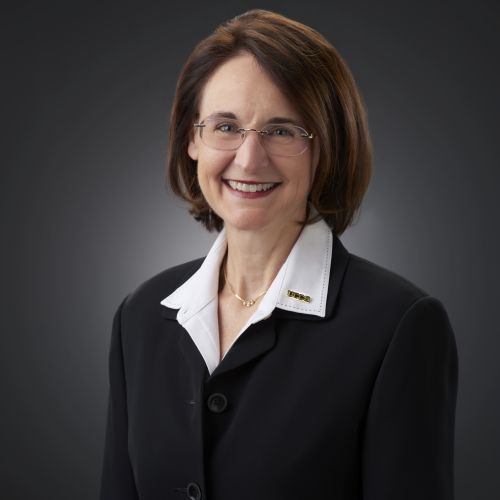
Dr. Jennifer Sobanet serves as the 9th Chancellor of the University of Colorado Colorado Springs (UCCS). Chancellor Sobanet is passionate about improving student success, growing the university’s research impact, and elevating the campus-community connection. She is also committed to cultivating a campus culture of care focused on curiosity, creativity and innovation grounded in human and organizational resilience.
She is an alumna of the 2025 Colorado Springs Leadership Institute Class and alumna of the 2014 Leadership Denver Class. She currently serves as the chairperson of the University Development Board, is a member of the Colorado Springs School of Technology Board, and the Pikes Peak Community Foundation Our Spacious Skies Steering Committee.
Chancellor Sobanet previously served the University of Colorado Denver (CU Denver) as Executive Vice Chancellor of Administration and Strategy and CFO. While at CU Denver, she led CU Denver’s strategic plan implementation, strategic partnership development, and investments in an innovation ecosystem. Under her leadership, CU Denver developed new corporate, community and public/non-profit partnerships and established the Office of Strategic Impact.
Chancellor Sobanet received her Ed.D. in leadership for educational equity in higher education from the University of Colorado Denver and an MA in international studies and an MBA in international financial management from the University of Pennsylvania. She was a Yeager Scholar at Marshall University where she earned her BA in Economics. She and her husband, Henry, reside in Colorado.
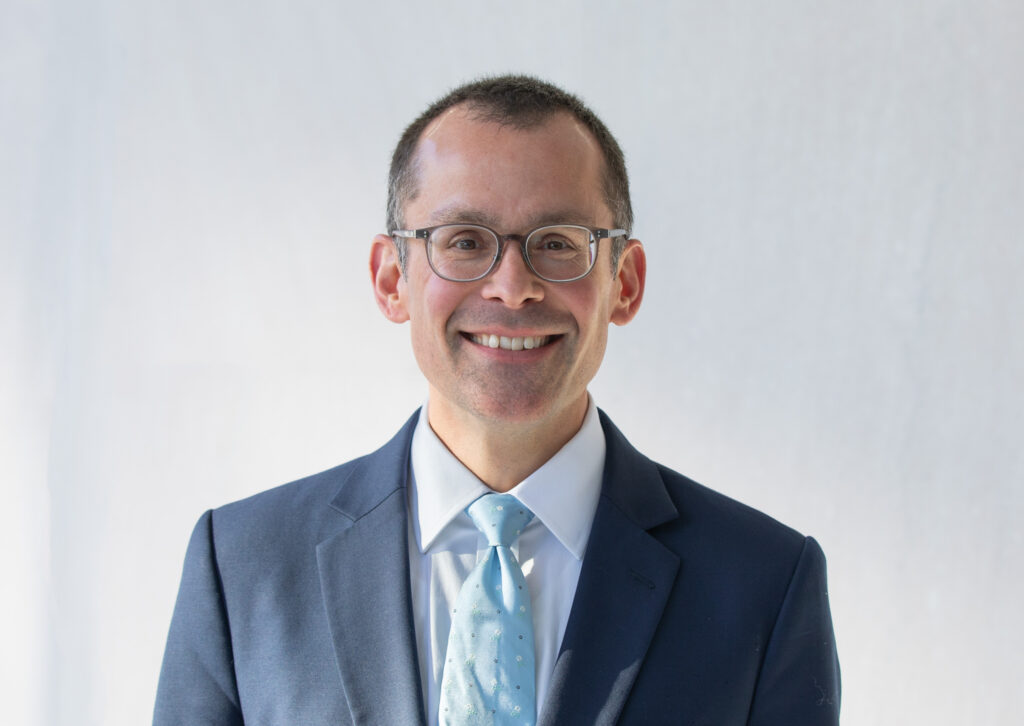
Clayton Swope is the deputy director of the Aerospace Security Project and a senior fellow in the Defense and Security Department at the Center for Strategic and International Studies (CSIS). Before joining CSIS, Swope led national security and cybersecurity public policy for Amazon’s Project Kuiper, an initiative to increase global broadband access through a constellation of satellites in low Earth orbit. While at Amazon, he also worked on cloud policy issues. Prior to his time at Amazon, Swope served as a senior adviser on national security, space, foreign affairs, and technology policy issues for a member of the U.S. House of Representatives. He also worked for more than 14 years at the Central Intelligence Agency, serving largely in the Directorate of Science and Technology. He holds a bachelor of science in mechanical engineering from the University of Notre Dame.
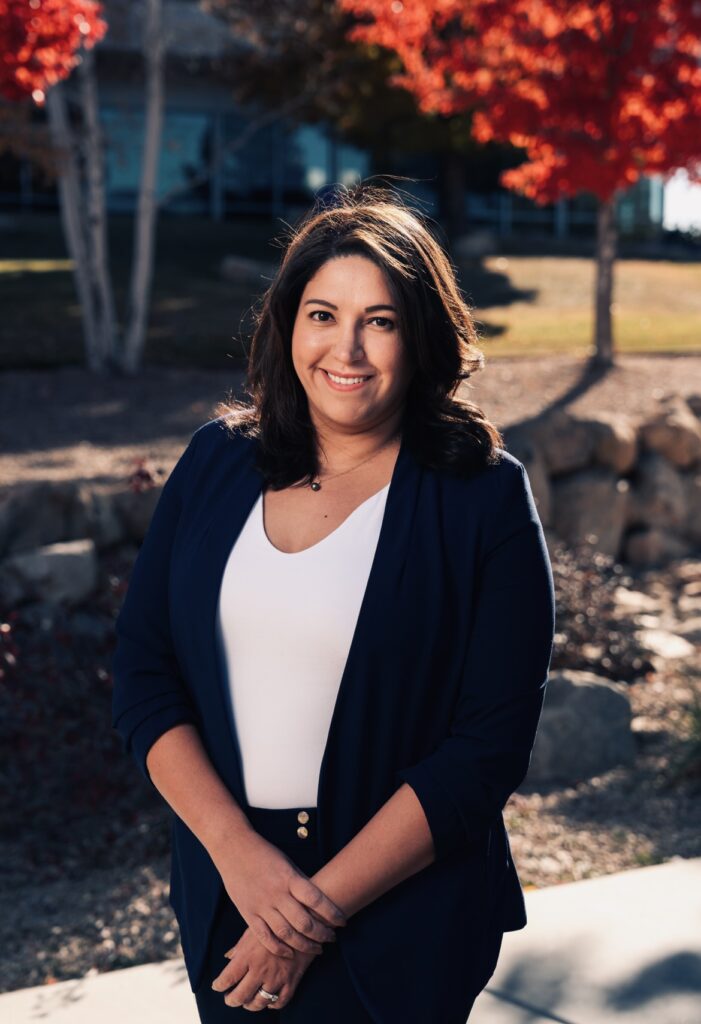
Rosa Szurgot is an Assistant Professor of Space Systems Cybersecurity at Embry-Riddle Aeronautical University, a 2025 Fulbright Fellow, and an NSF-sponsored doctoral candidate. Bridging avionics engineering with cutting-edge cyber defense, she researches and teaches secure command-and-data-handling architectures, resilient satellite networks, and quantum-ready communications.
In 2022, Rosa led the implementation of the full cybersecurity-requirements baseline for NASA’s Gateway lunar-orbit program—work formally recognized by both agency leadership and Gateway’s systems-engineering divisions for harmonizing complex, multi-vendor security specifications into a unified architecture.
Her current scholarship builds machine-learning defenses that detect and thwart threats across orbital, ground, and emerging quantum links while shaping national-security policy for the peaceful use of space. To translate theory into practice, she designs immersive cyber ranges where blue- and red-team operators battle across simulated interplanetary and IoT environments, each scenario bound by rigorous rules of engagement. Through this fusion of research, policy, and experiential training, Rosa equips engineers and decision-makers with the tools and insights needed to keep humanity’s expanding presence in space secure, resilient, and responsibly governed.

Kadari Taylor-Watson is a strategic leader in organizational transformation with a proven track record of building partnerships, driving impact, and amplifying inclusive initiatives. She holds degrees in Sociology and Psychology from Hampton University and a Masters in Medical Sociology, from Purdue University and is currently completing her doctoral degree in Interdisciplinary Studies at Purdue, where her research explores material culture as a lens to understand the lived experiences of Black women globally and the role of design as an extension of radical self-definition, love and freedom.
Kadari has served as an undergraduate professor at Purdue University and Colorado College and fondly recalls two of her most meaningful years teaching third-grade science in Colorado Springs at acclaimed charter school before joining her current organization.
Today, Kadari serves as Director of Community Engagement & Impact at U.S. Figure Skating, where she leads national initiatives to expand the sport’s reach on and off the ice.
With expertise in strategic communications, partnership development, and programming, in her role Kadari is passionate about harnessing sport as a platform for belonging and cultural connection.
Outside of skating, she is a proud advocate for the space industry, an active volunteer for Space ISAC, serves on the Olympic City USA Task Force and a dynamic speaker committed to leaving a lasting mark both within sport and across broader communities.
Her favorite quote is from legendary poet Maya Angelou, who said: “People will forget what you said, people will forget what you did, but people will never forget the way you made them feel.”
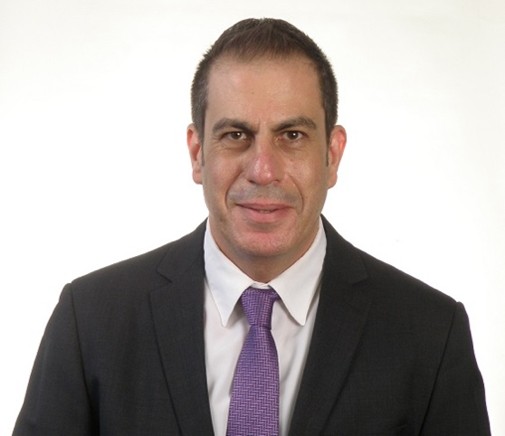
Dr. Eytan Tepper is Research Professor, Space Governance & Security and Director of the Space Governance Lab at Indiana University Bloomington, where he is affiliated with the Ostrom Workshop established by Nobel Laureate Elinor Ostrom. He teaches courses on Space Governance, Space-Cyber Governance, and Space Cybersecurity and leads research projects on global space governance, space-cyber power, and the commercial space revolution. Dr. Tepper earned his doctorate from the McGill University Institute of Air and Space Law and subsequently pursued a postdoctoral fellowship at the New York University (NYU) School of Law. Dr. Tepper has published in journals like the Maryland Law Review, the Georgia Law Review, the NYU Journal of International Law and Politics, Global Studies Quarterly, Journal of Space Law, Space Policy Journal, and Georgetown Journal of International Affairs. Prior to his return to academia, he was a practising lawyer with a career spanning the public and private sectors, representing government ministries and Fortune 500 companies.
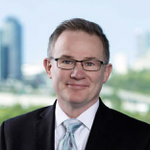
Through CEM, MITRE provides engineering and data analyses and related studies to advance the missions of the US Treasury, IRS, Veterans Affairs, Department of Commerce, Social Security, Federal Reserve, USDA, OPM, and related Federal entities.
Kevin is responsible for engaging leadership of his customer base to understand their mission, threats to those missions, and how the broad capabilities of the FFRDC can be brought to bear against those threats to improve mission outcomes.
In his 20 years at MITRE, Kevin has led and overseen several groundbreaking data analytics efforts, including the use of novel data sets to discover fraud, radio frequency interference and data downlink assurance, and Federal Reserve fraud analytics.
A decorated former Air Force officer, Kevin served in the Air Force’s Space & Missile Systems Center (SMC) in Los Angeles with launch vehicles and satellite mission planning.
Kevin graduated from Rider University (B.S., finance) and the Wharton School of Business at the University of Pennsylvania (M.B.A., finance and public policy).
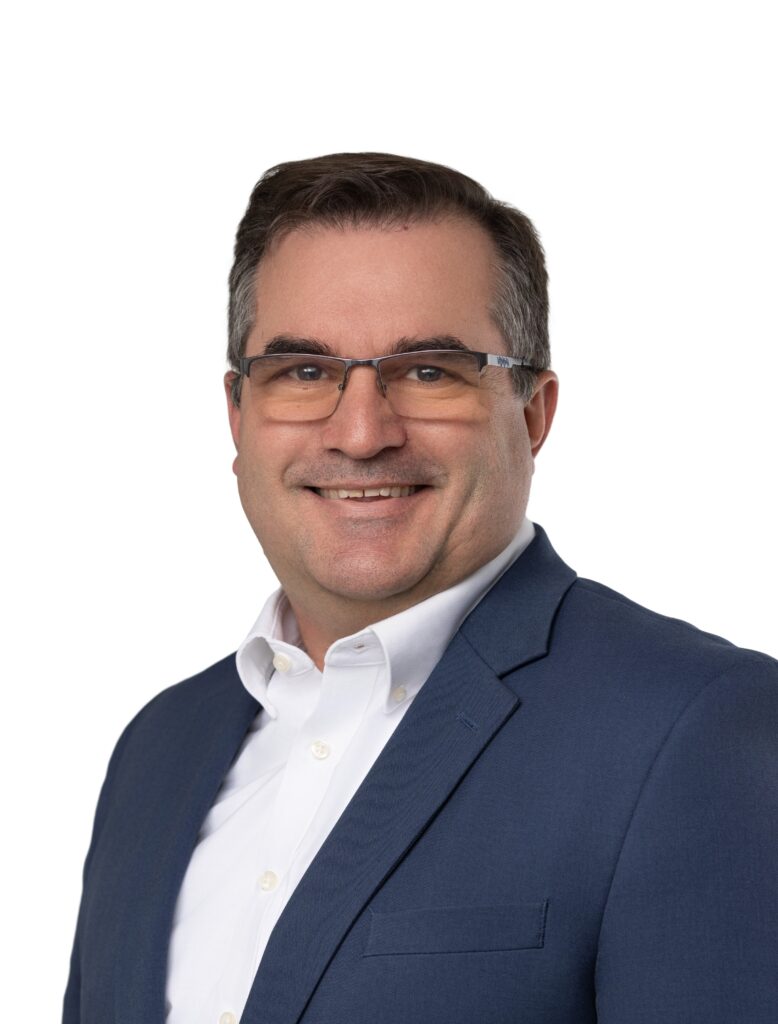
Mark is President of the Amentum Engineering & Technology business. His business delivers engineering and technical services across the full engineering life cycle, supporting scientific research and development, technology integration, digital engineering, C5I, training, data analytics, cyber security, and business process outsourcing.
Before joining Amentum, Mark Walter was a Senior Vice President in Jacobs’ Critical Mission Solutions (CMS) line of business. He led the Advanced Engineering, Research & Operations business, which supported public and private sector clients across the aerospace, automotive, defense, and telecommunications sectors. He was responsible for Jacobs’ industry-leading support for the National Aeronautics and Space Administration (NASA) and all their exploration programs, Jacobs’ enterprise-wide support to the Missile Defense Agency and their critical mission, and contracts supporting other elements of the US Department of Defense (DOD) and the US Intelligence Community. Before assuming the AERO role, he was responsible for the Technology Group, Rapid Solutions, Nuclear Projects and Consulting, and Government Technology Operations performance units.
At Jacobs, Mark served in progressively more responsible positions, including as a project manager, manager of the Mechanical and Structural Engineering branch, Manager of Projects, Director of Advanced Consulting, Director of Projects, Deputy General Manager, and General Manager of the Technology Group involved with the full range of engineering, construction, operations, and maintenance services in support of mission-critical and program-specific activities for clients including the NASA, DOD, Department of Energy, and commercial automotive, and aerospace companies.
Mark has been responsible for major programs for domestic and international clients in the aerospace and automotive markets. Before joining Jacobs, he held project management, product engineering, and research engineering roles at Ford Motor Company and the McDonnell Douglas Corporation.
Mark earned his Master of Science in mechanical engineering from the University of Missouri-Rolla and a Bachelor of Science in mechanical engineering from the University of Missouri-Kansas City/Columbia.
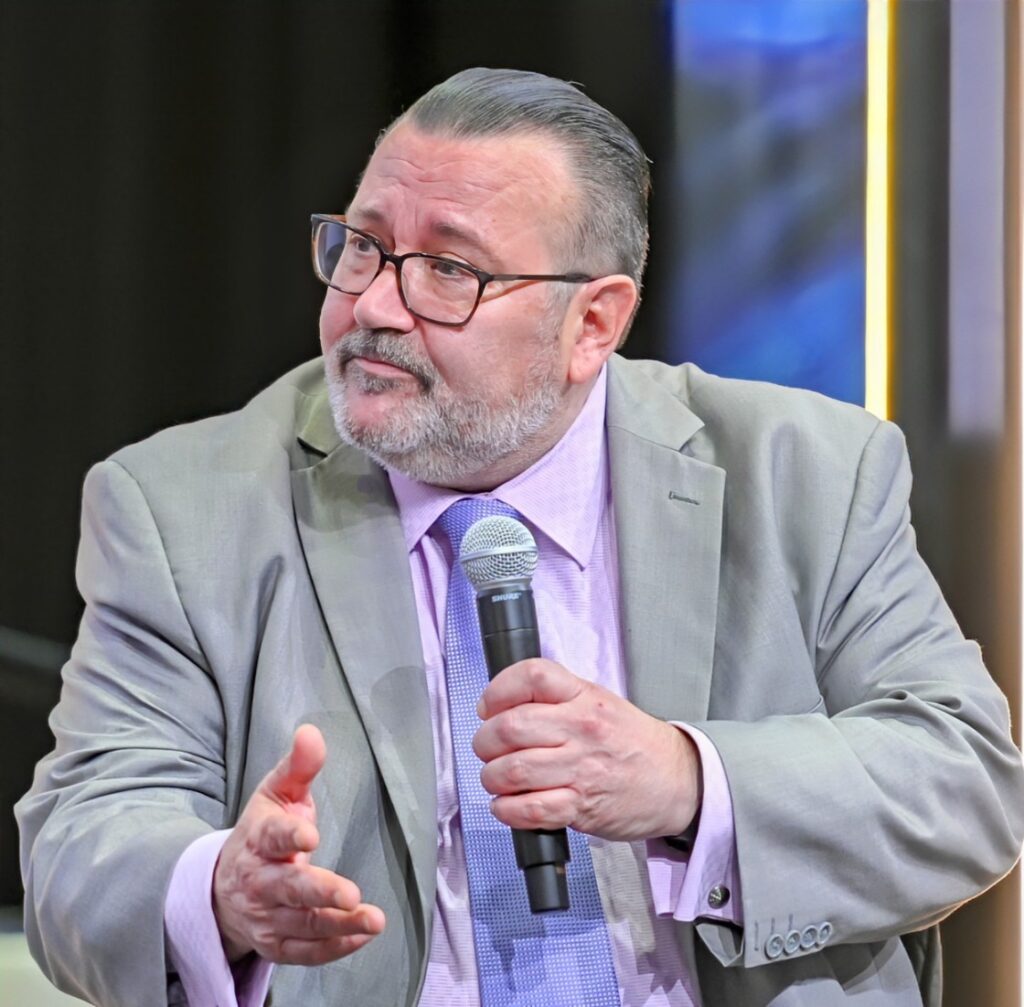
Shaun Waterman is an award-winning journalist who has worked for the BBC, United Press International, Newsweek and POLITICO, and an expert on homeland and cybersecurity who has moderated discussions at leading conferences like Gitex and the Aspen Security Forum.
Shaun is also an accomplished newsroom manager and business leader, who has in the last decade launched two of the best-respected and most widely read DC daily cybersecurity newsletters — POLITICO Pro’s Morning Cybersecurity and Scoop News Group’s CyberScoop.
Shaun became UPI’s Homeland and National Security Editor shortly after Sept. 11, 2001, covering the Department of Homeland Security from its standup in 2003. His reporting on DHS and counter-terrorism policy earned him two (2005, 2011) “Dateline Washington” awards from the Society of Professional Journalists, and a senior fellowship at the George Washington University Center for Cyber and Homeland Security (now at Auburn University).
In 2009-10 Shaun produced a major report on cybersecurity for critical infrastructure at the Center for Strategic and International Studies, a leading Washington think tank.
From 2010-2013, he wrote about intelligence, foreign affairs and cybersecurity as a staff reporter for The Washington Times.
From there, he went to POLITICO and then, in 2015, to launch CyberScoop. In 2020 he was recruited by Newsweek to join its short-lived investigative unit, which was shuttered in 2024.
Since then, he has been a freelance journalist and content strategist, working as a reporter for the cybersecurity, defense and space industry trade press and advising on and producing content marketing for Fortune 500 companies.
Prior to joining UPI in 2000, Shaun worked as a senior producer for the British Broadcasting Corporation’s flagship evening radio news program, The World Tonight. In 1999, he was appointed to run the BBC’s American radio news desk in Washington, providing round-the-clock news from all over both American continents for the corporation’s six radio networks.
Before joining the BBC, he worked as a freelance journalist and parliamentary aide in London, writing for publications including the investigative magazine Private Eye.
Shaun, who is British, has a master’s degree in social and political sciences from King’s College, Cambridge. He is married and lives in Washington, DC with his wife and three American sons.
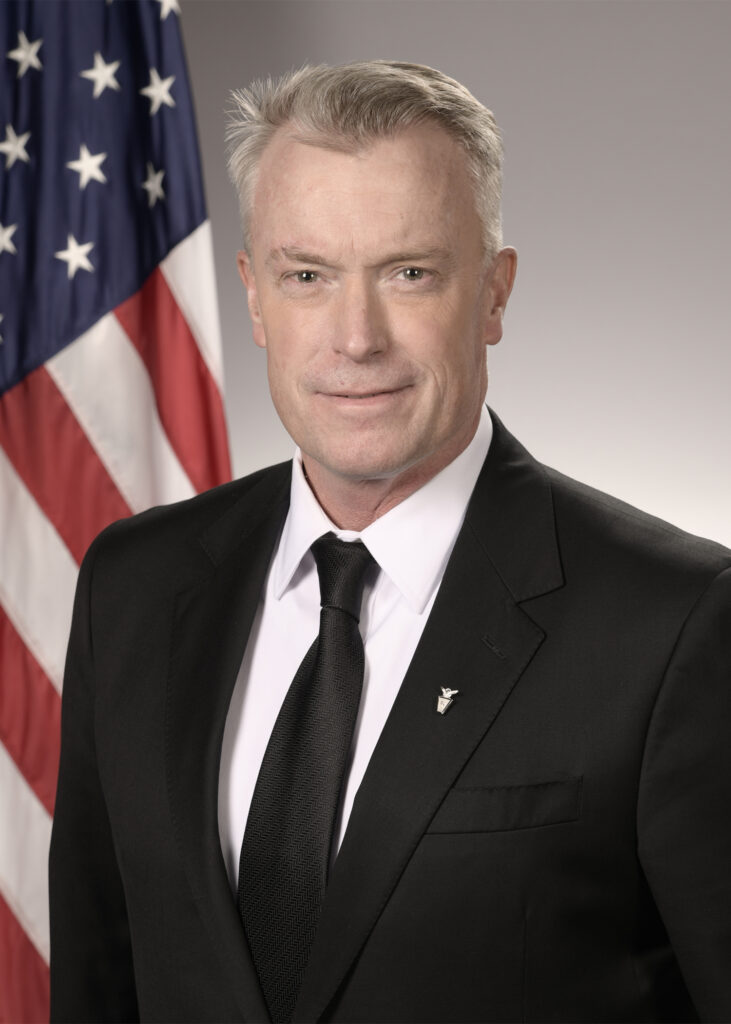
Mr. John A. Watkins currently serves as the Deputy Director, where he plays a key role in overseeing and coordinating the organization’s strategic initiatives, programs, and operations. He works closely with various stakeholders, including senior leadership, staff, and external partners, to ensure effective integration of functions across the organization and drive mission success. Before retiring from the Navy, Mr. Watkins was assigned to U.S. Space Command as the Deputy J3 for Information Warfare in June of 2021, where he played a key role in shaping the command’s information warfare strategy and operations. In this role, he worked closely with senior leaders to develop and implement plans, policies, and procedures for information warfare, and provided expert advice and guidance on matters related to cyber operations, electronic warfare, and space operations. Mr. Watkins is a 1991 graduate of the University of San Diego, where he earned a Bachelor of Arts in Economics and was commissioned through the Naval Reserve Training Corps program. He also holds a Master of Science in Information Technology Management from the Naval Postgraduate School. His extensive experience in information technology, information operations, and leadership has prepared him for his current role as Deputy Director, and he is well-positioned to drive success in this new chapter of his career
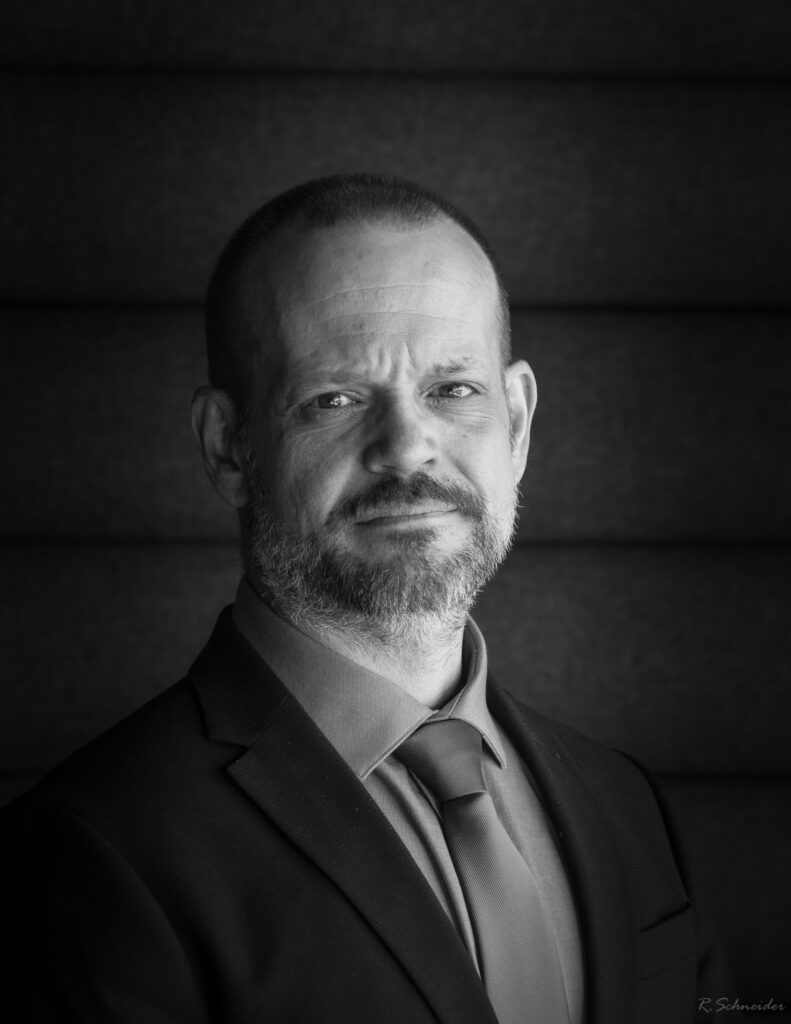
Dick Wilkinson is the CTO and Cofounder of Proof Labs. He works in the S-ISAC Cyber Vulnerability Lab offering technical security assessments of Space technology. He is a retired Chief Warrant Officer 4 from the US Army where he served as Signals Intelligence analyst for the NSA and as a cyber lab director for the Secretary of Defense. Upon retirement he served as the CISO and CTO for the Supreme Court of New Mexico before incorporating Proof Labs.
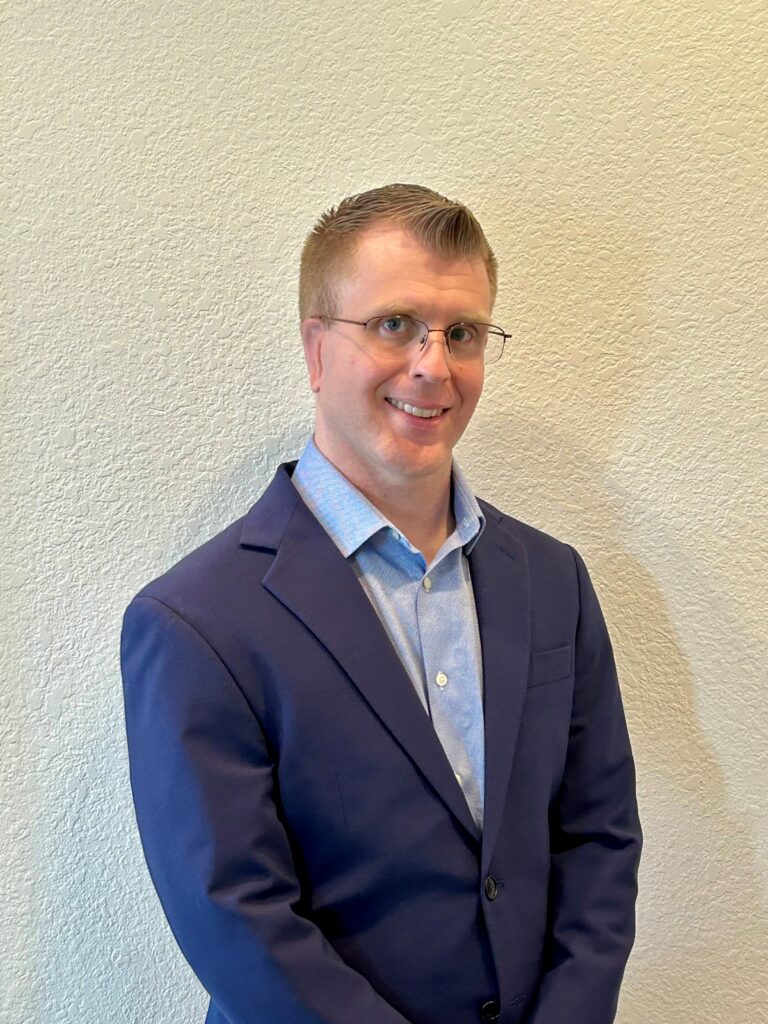
Alexander Wright is an Engineering Specialist at the Aerospace Corporation. Graduating from Utah State University in 2014 with a degree in Computer Science, he has worked on Air Force and Space Force weapon systems for over eleven years with seven years dedicated to issues regarding software supply chain risk management.

Dr. Shouhuai Xu is the Gallogly Chair Professor in Cybersecurity, Department of Computer Science, University of Colorado Colorado Springs (UCCS). He is the founding director of the Laboratory for Cybersecurity Dynamics. His research has won several awards, including 1st place at 2019 Worldwide Adversarial Malware Classification Challenge organized by the MIT Lincoln Lab, the 2023 USCYBERCOM CyberRecon Analyst Award, the 2024 USCYBERCOM CyberRecon Hunter Award, 1st place at 2024 DoD NSIN/UC2 Cyber Innovators Challenges, and 2025 ACM SIGSOFT Distinguished Paper Award. His research has been funded by AFOSR, AFRL, ARL, ARO, DoD/UC2, DOE, NSA, NSF and ONR. He was the Technology Pillar Lead of an NSF Regional Innovation Hub (Phase 1), which focuses on making space infrastructures and systems resilient. He co-initiated the International Conference on Science of Cyber Security (SciSec) and is serving as its Steering Committee Chair. He has served as Program Committee co-chair for several international conferences. He is/was an Associate Editor of IEEE Transactions on Dependable and Secure Computing (IEEE TDSC), IEEE Transactions on Information Forensics and Security (IEEE T-IFS), IEEE Transactions on Network Science and Engineering (IEEE TNSE), and Springer Nature’s Scientific Reports. He is a Distinguished Member of the Association for Computing Machinery (ACM). More information about his research can be found at https://xu-lab.org.

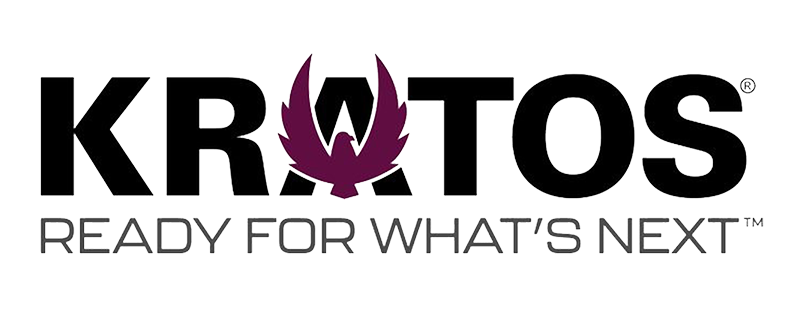





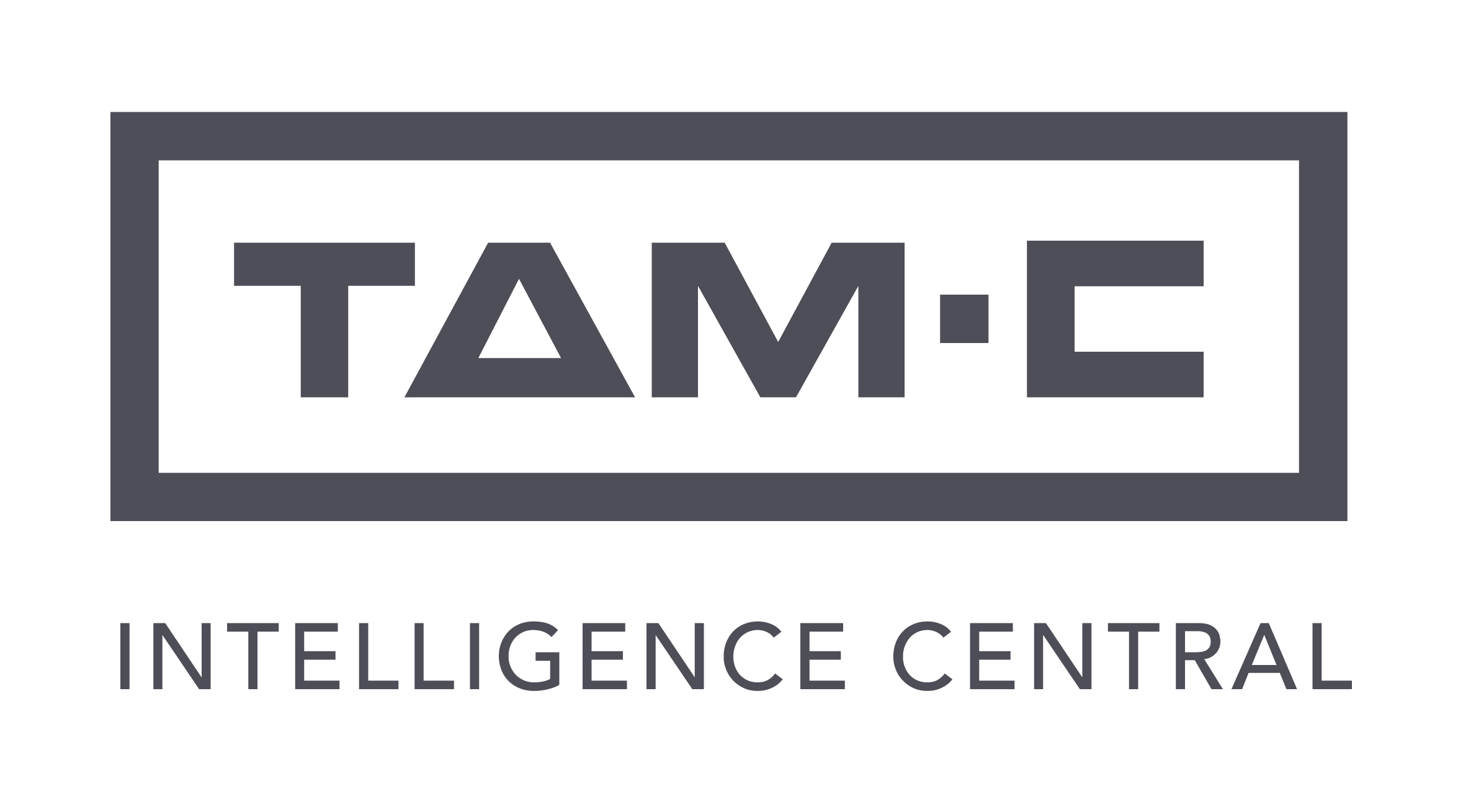


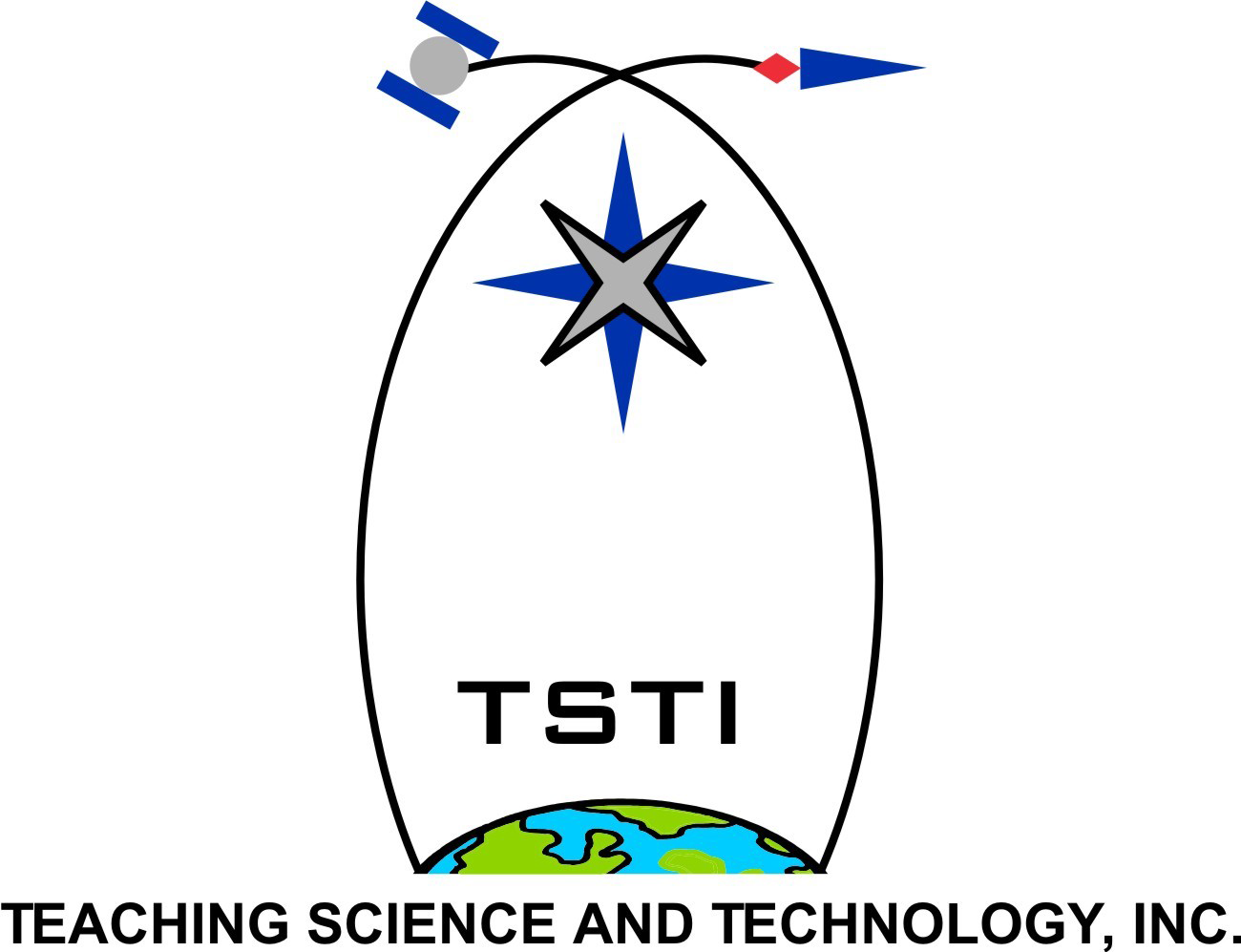




We’d like to hear your thoughts, questions, and feedback on our CMMC resources so we can continue to update and improve our resource library for the community!

Please provide your information below, and a Space ISAC team member will contact you shortly.

We’d like to hear your thoughts, questions, and feedback. A team member will reach out to you in response, as appropriate.